Tuesday February 25, 2025
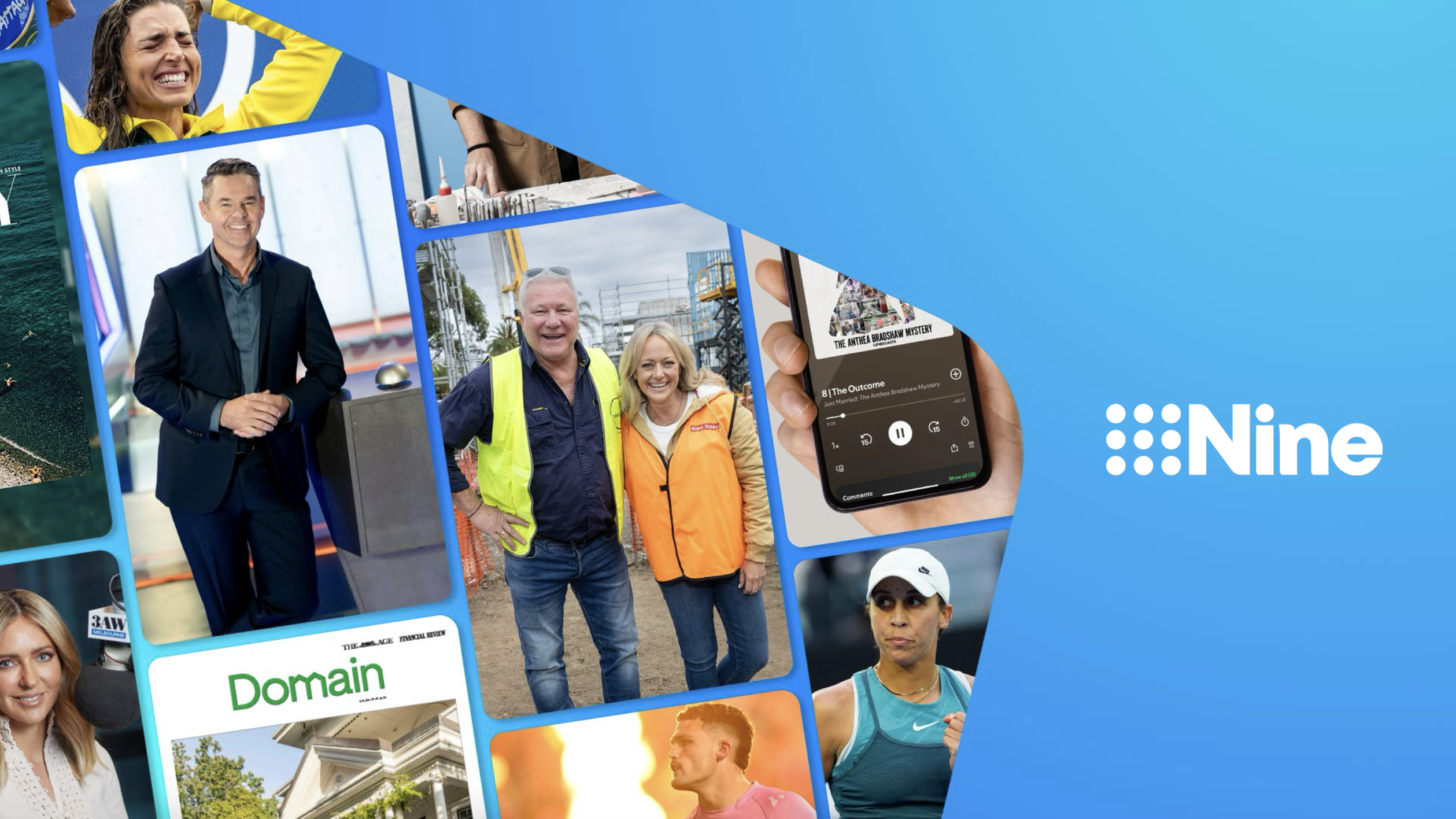
Nine Entertainment Co. reports $1.4bn revenue amid strategic restructuring
Nine Entertainment Co. (ASX: NEC) has announced its interim financial results for the six months ending 31 December 2024, reporting a revenue of $1.4 billion and a Net Profit After Tax (NPAT) of $96 million. The company’s Group EBITDA, before specific items, stood at $268 million, reflecting a 15% decrease compared to the same period last year. This decline is attributed to challenging economic conditions, a softer advertising market, and the cessation of revenue from Meta.
Key Highlights:
• Olympic coverage success: Nine’s comprehensive broadcast of the Olympic Games enhanced audience engagement across its platforms and proved profitable and positive cash flow for the company’s streaming and broadcast segments.
• Audience and subscription growth: The period saw an increase in streaming and broadcast audiences, with subscription revenues rising by 8% (excluding Domain and the impact of Meta/Google). Notably, the metro mastheads, Australian Financial Review (AFR), and Stan contributed to this growth.
• Domain’s performance: Domain reported a 15% growth in EBITDA contribution to Nine, driven by a 7% increase in new ‘for sale’ listings and a 14% rise in depth revenue.
• Digital audio expansion: Digital revenue in the audio segment grew by 33%, with Nine maintaining industry leadership in live streaming audiences.
• Cost efficiencies: The company achieved $35 million in cost efficiencies during the half-year, surpassing the previously targeted $50 million for FY25.
• Dividend declaration: An interim dividend of 3.5 cents per share, fully franked, has been declared.
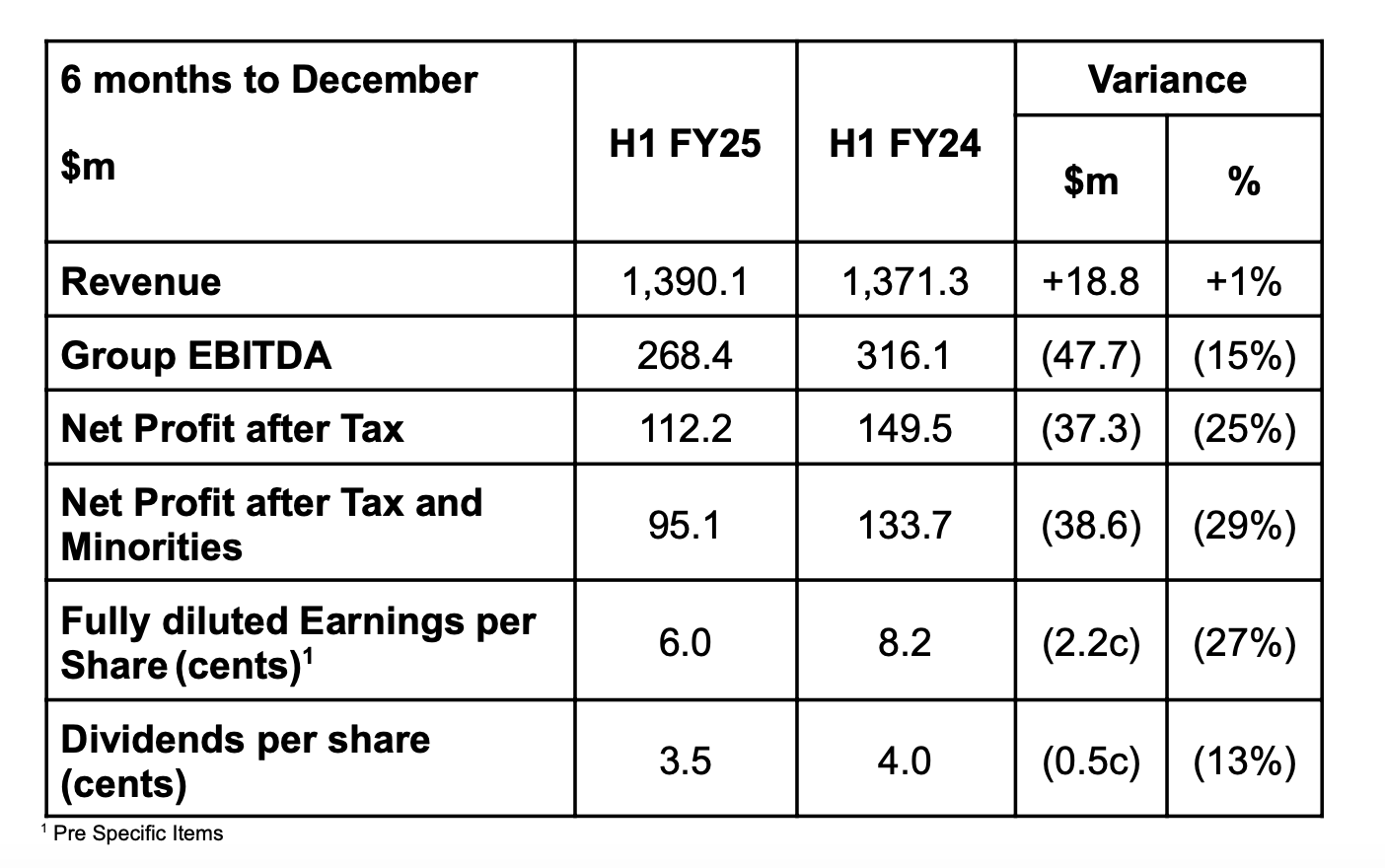
The 2025 Interim Financial Results for Nine Entertainment Co. Holdings Limited.
Chair Catherine West said of the results, “In a challenging market environment, we have continued to perform well operationally, while simultaneously strengthening our strategic position and implementing our cultural reset.”
Acting CEO Matt Stanton added, “We have worked together over the past six months to build a roadmap for strategic and cultural transformation. I am proud of the way our people have responded, with strong engagement and an overwhelming spirit of constructive optimism.”
Operational insights:
• Total Television: Despite a 10.1% decline in the Metro Free To Air advertising market, Nine achieved a revenue share of 42.1%, marking an all-time high for any network in the December half. Streaming revenue through 9Now grew by 28%, bolstered by Olympic coverage.
• Stan: The streaming service reported a 7% increase in revenue, with paying subscribers exceeding 2.3 million. EBITDA grew by 16%, reaching a record $29.4 million for the first half.
• Publishing: Digital subscription revenues at the metro mastheads grew by approximately 15%, excluding the impact of Meta and Google. Total subscribers surpassed 500,000, with registered users exceeding 1.8 million.
• Domain: The real estate platform focused on increasing listings coverage, resulting in an 8% growth in digital revenues and a 14% rise in Residential depth revenue.
• Total Audio: The audio segment saw a 2% increase in total revenue, with digital revenues up by 33%. Nine’s radio stations, 2GB and 3AW, maintained their positions as the top stations in Sydney and Melbourne, respectively.
As of 31 December 2024, Nine’s net debt stood at $481 million on a wholly owned basis, equating to a net leverage of approximately 1.4x. The company reported operating cash flow before specific items, interest, and tax of $209 million, representing a cash conversion rate of 109%.

TikTok and Meta respond to eSafety findings on inadequate age rules on social media platforms
A report by the Australian eSafety commissioner has found children are bypassing inadequate and poorly enforced minimum age rules on social media platforms, only asking people to self-declare their age at sign-up.
The Basic Online Safety Expectations (known as ‘the Expectations’), from the online safety regulator, aims to help keep young Australians safe while using social media, messaging and gaming services, as well as other apps and websites.
The report brings together findings from a national survey on social media use among Australian children aged 8-15 and data from social media platforms – YouTube, TikTok, Snapchat and Instagram- on how they enforce their own age restrictions.
According to the online safety regulator, from responses from YouTube, Facebook, Instagram, TikTok, Snap, Reddit, Discord and Twitch, from January and July 2024, creating an account as someone aged under 13 was a simple process, with many only requiring a self-declaration of age at sign up.
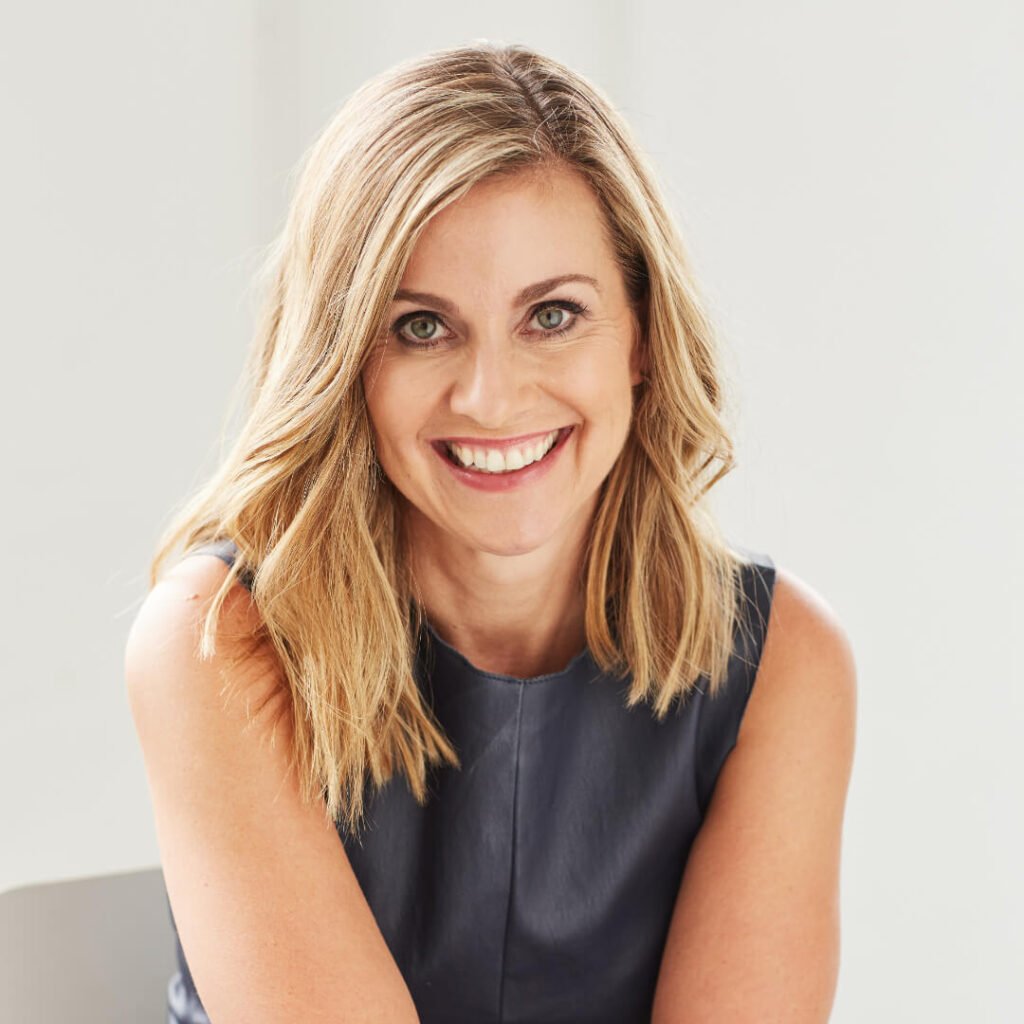
eSafety commissioner Julie Inman Grant
‘Likely underestimation of the true numbers’
eSafety commissioner Julie Inman Grant said that the report shows there is still significant work to be done by any social media platforms relying on truthful self-declaration to determine age with enforcement of the Government’s minimum age legislation on the horizon.
“Social media services not only need to make it harder for underage users to sign up to their services in the first place, but also make sure that users who are old enough to be on the service, but are not yet adults, have strong safety measures in place by default.
“Few have any real stringent measures in place to determine age accurately at the point of sign-up so there’s nothing stopping a 14-year-old for instance entering a false age or date of birth and setting up an unrestricted adult account that doesn’t carry those extra safety features.
“And this likely means the platforms are unaware of the true numbers of users identified as children and teens on their services. Some platforms also make it very difficult to report under-aged users who are on their platforms today.”
She noted that reported numbers of monthly active users by services under the age of 18 are likely to underestimate the true numbers.
“Even with the likely underestimation of the true numbers, we are still talking about a lot of kids. For instance, Snapchat says of its 8.3 million monthly active users in Australia almost 440,000 are aged 13-15, Instagram with around 19 million users says around 350,000 are in this age group, YouTube with well over 25 million users said 325,000 were aged 13-15, while TikTok with close to 10 million users reported around 200,000 were in this early teen cohort.”
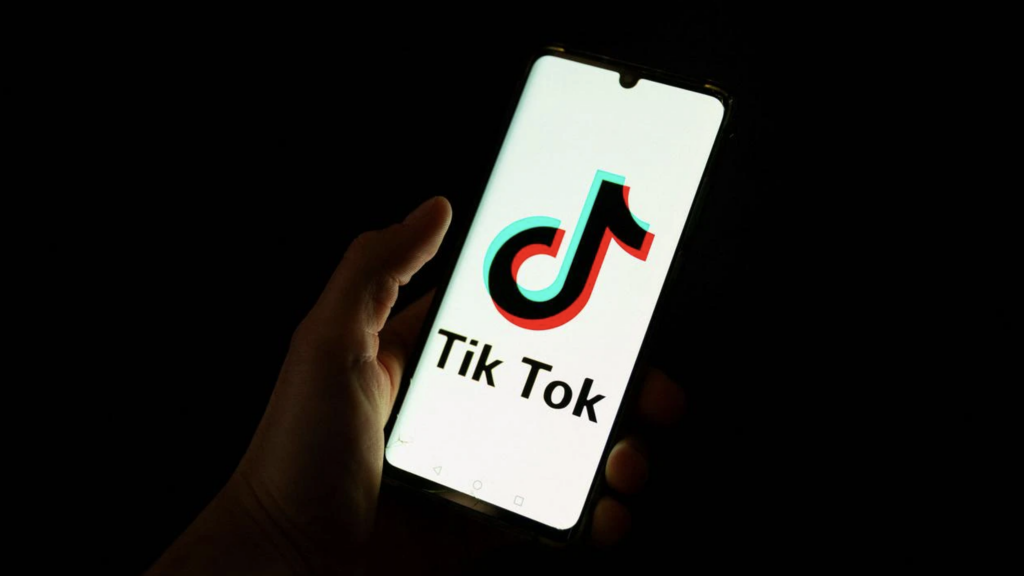
TikTok
In response, a TikTok spokesperson said: “As a platform, the safety of our more than 9.5 million Australian users is our highest priority and we are pleased that eSafety has recognised the best practice work we do to keep young people safe.
“Since the start of 2023, our industry leading, proactive age detection tools, have resulted in the removal of more than one million Australian users suspected of being under the age of 13.
“This report again shines a spotlight on the Government’s decision to give an exclusive carve out to the most popular social media platform for young Australians from the under 16 ban. Australian parents and guardians have a right to know what evidence, if any, supports the Government’s decision, so they can have confidence their children are safe on any exempted platforms,” they added.

Meta fact checkers

Cathy O’Connor on OOH’s resurgence as oOh!media posts 14% revenue surge
oOh!media has bounced back from a sluggish first half of 2024, forecasting 14% year-to-date revenue growth as of February 2025 and a 14% lift in Q1 media revenue. This follows a nearly flat 2024, where total revenue reached $636 million, just 0.3% above the previous year’s $636.9 million.
CEO Cathy O’Connor pointed to shifting industry dynamics as a key driver of the rebound, noting, “Out-of-home audiences are growing,” despite fragmentation across TV and radio. She credited the company’s renewed go-to-market strategy, investment in new assets like the Sydney Metro, and the rapid expansion of programmatic digital out-of-home advertising as critical factors in the turnaround. The market reacted positively, with oOh!media’s share price jumping nearly 10%, outpacing broader outdoor advertising gains of 4.9% to 8%.
Reflecting on the evolving market, O’Connor added, “You know, there is of course the digitisation going on in the sector, and a lot of new assets, and the fact that audiences are fragmenting across TV and radio – but out of home audiences are growing.”
She continued, “So mass reach, cost effective, mass reach, all of those media factors become more truthful the further out we go, as the market spreads a thousand ways across all forms of channel.” O’Connor underscored the structural shift in out-of-home advertising: “So that macro for out of home, that structural shift, is part of the momentum, and within that, we’re the largest player, and we acknowledged we started 2024 in a substandard sort of way, and we’ve really addressed our go to market strategy.”
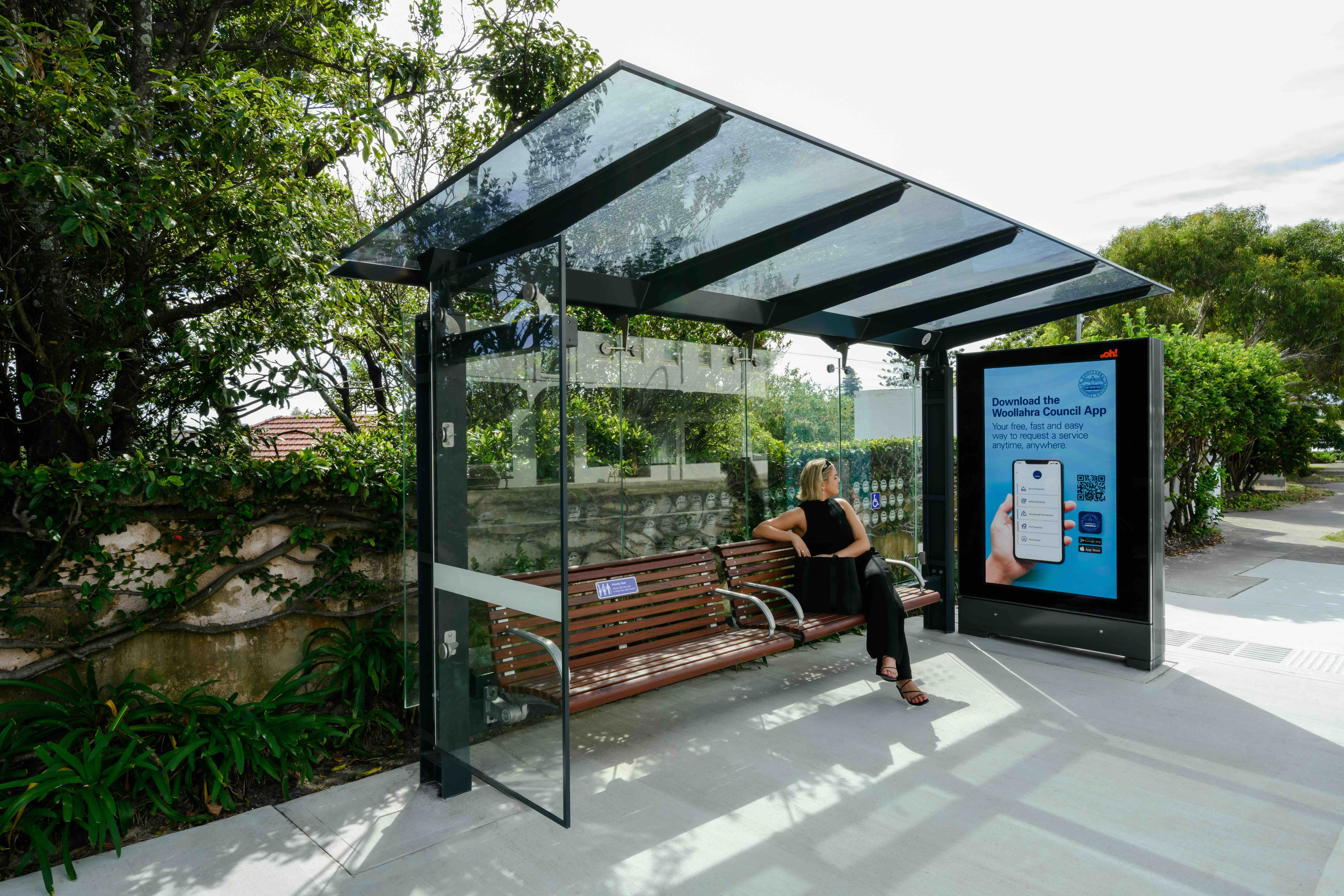
oOh!media in Woollahra.
Plans for 2025
Detailing operational initiatives, O’Connor added the company is “putting a lot of new assets into the ground”.
“Those are the things driving real momentum,” she said. “So things like the Sydney Metro. We’ve obviously also got Woollahra Council with two other councils, Waverley and Manly, to come through, and we are also building out large format sites in Sydney and Melbourne.”
On revenue drivers, she noted, “Those new assets move revenue on top of that, while programmatic continues to grow for the industry – that’s a different type of customer, but it allows you to buy digital out of home in a real time way. And there’s a lot of work going in there.”
O’Connor noted the company has recorded “real inroads” in the sphere “more than doubling” their programmatic revenue in the last year.
“Whether it’s 3D anamorphic or data-led targeting, a lot of big advertisers and categories are starting to realise out of home is much more than brand fame, and increasingly, we’re telling that story to every category and many categories are responding.”
Key partnerships
Highlighting strategic collaborations, O’Connor mentioned key partnerships with PetBarn, Officeworks, and Australia Post, adding, “The retail media space is fast moving and the fact we’ve signed three key partnerships shows that we see a role for oOh!media as an independent enabler of retail media strategies for that mid-small to mid-size retailer.”
Meanwhile when it comes to new investments, O’Connor highlighted that there was “$68 million of contracts won over the last two years”.
“It started with Metro Trains Melbourne, and then obviously the Martin Place precinct, Woollahra Council, Waverley Council, Manly Council, Metro Tunnel, and the East Link road sites in Victoria – they’d be the largest parts of that $68 million so it’s all brand new digital assets, key locations, Sydney and Melbourne,” she said.
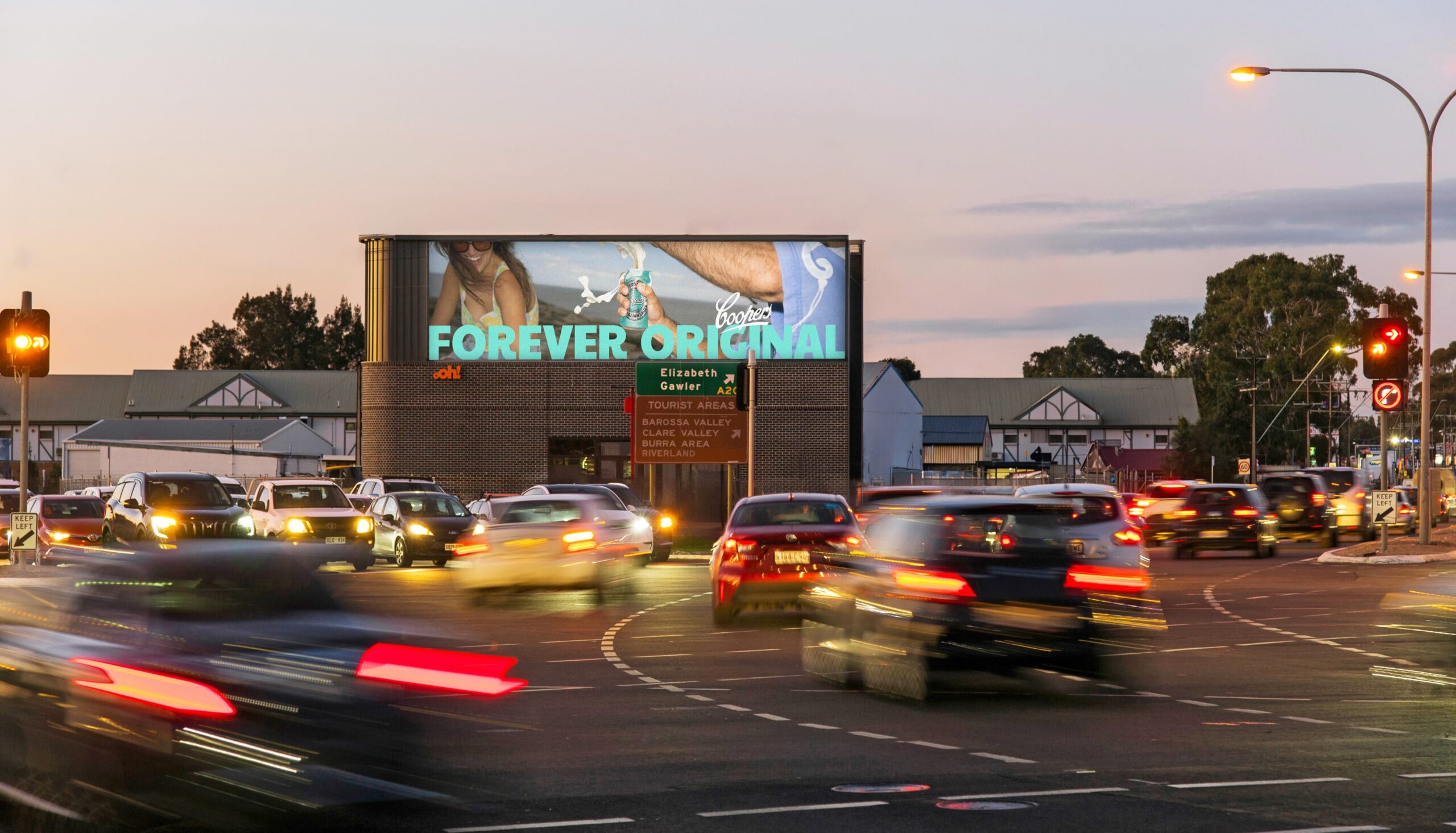
oOh!media at the East Link road sites in Victoria.
Cost cutting
The company has recently implemented $15m cost reduction program, a move O’Connor said was necessary to understand the company’s biggest inefficiencies.
“Most of the people that have been removed from the business were operating in and around inefficient systems and ways of working,” she explained. “We’ve had a big drive for simplification, and that’s allowed us to look at where we have roles that aren’t as efficient as they need to be, or where we can tighten up processes and deliver for customers.”
O’Connor said a focus on high value contracts has also seen a boost to the company’s gross profit margin: “The company has exited those lower margin contracts and that helped.”
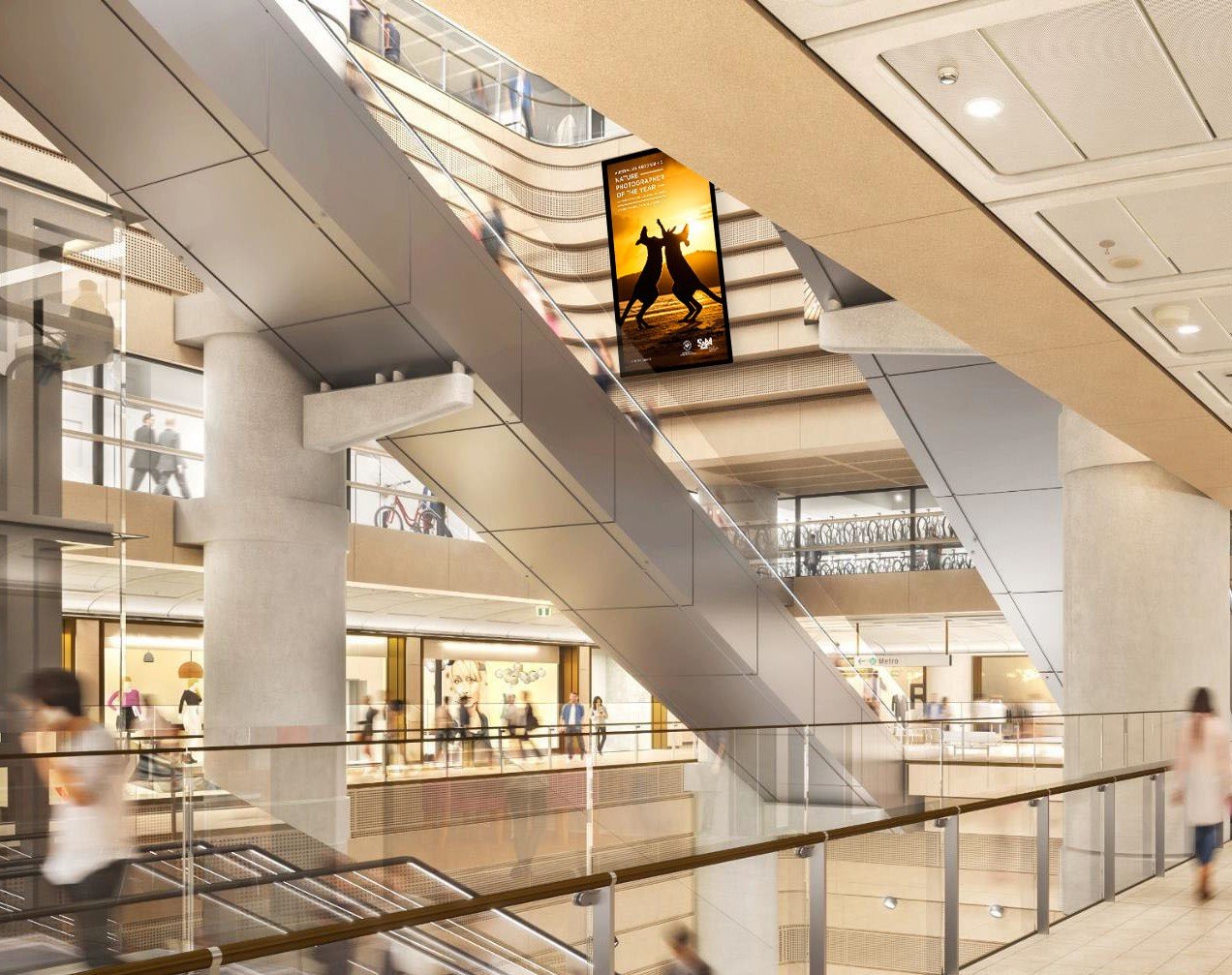
oOh!media the Martin Place precinct.
When outlining those strategic priorities for the next 12 to 24 months, O’Connor explained their strategy is simple: “It’s about keeping our go to market fresh and competitive and making sure our teams are showing up with fast and timely responses for customers that meet campaign needs.”
“We also want to develop all these new assets and getting them in the ground, because that brings growth for the business, and obviously continuing to advocate for creative uses of out of home. Secondly, we’re going to keep bidding for high value assets in Sydney and Melbourne. We want to be number one in road, street and rail, and clearly making strides toward that, and have achieved that in many instances. And then reo is also a focus. So it’s an emerging space. We’re going to service these new partnerships and kick some goals for them and potentially some new customers as well. So they’re the three pillars that’s what we’re focused on,” she said.
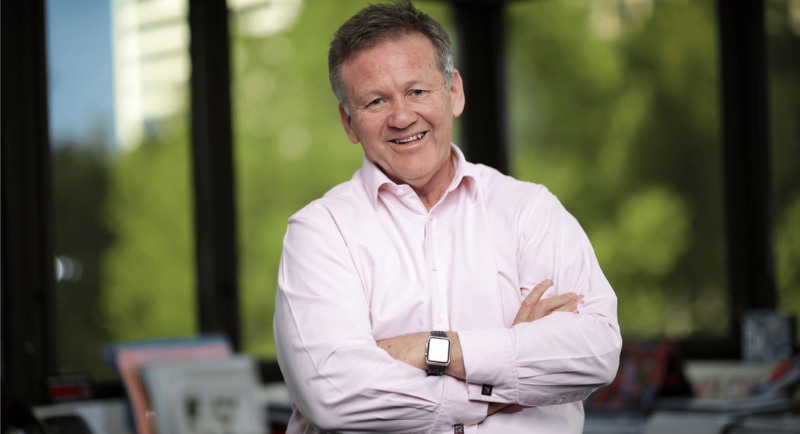
TEG Sport’s global expansion: Bringing the world’s biggest teams to new markets
TEG is steadily expanding its footprint in global sports entertainment, leveraging strategic acquisitions and major event partnerships to bring international sport to new markets – in Australia and beyond.
As TEG Group CEO, Geoff Jones oversees the company’s dedicated sport division, TEG Sport which has grown rapidly in recent years.
In a strategic move to bolster its sports portfolio, TEG acquired Left Field Live and Rugby Live in mid-2023. This acquisition enabled TEG Sport to collaborate with British football clubs Manchester United, Liverpool, Real Madrid and the USA Basketball men’s national team to drive its growing portfolio of international events.
Last year, this included Rivals in Red USA 2024 Tour featuring Arsenal, Liverpool FC, and Manchester United competing at iconic US stadiums.
Additionally, TEG Sport partnered with Gravity Media to deliver the inaugural Perth International Football Cup, showcasing top women’s football teams and reaching audiences both in Australia and globally.
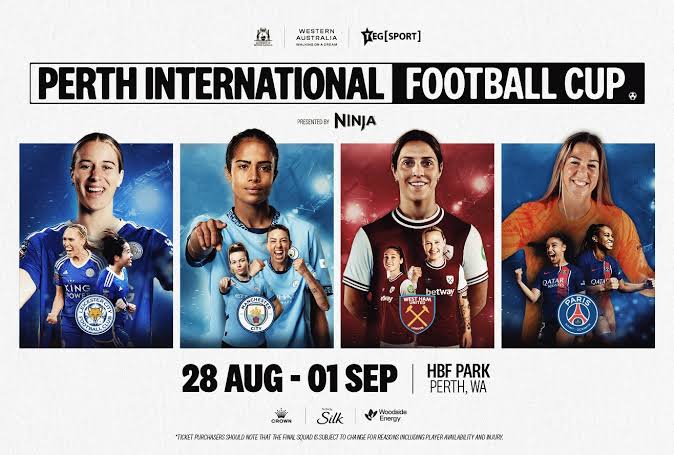
The Perth International Football Cup was held in 2024.
“We started this football part of the business ten years ago,” Jones explained to Mediaweek. “We brought Real Madrid and Manchester City to the Melbourne Cricket Ground back in 2015 and since then, we’ve grown it.”
TEG Sport now organises a packed schedule of football matches around the world and has worked with 19 of the top 20 football clubs globally, building long-term relationships with many of the sport’s biggest brands.
Last July, there were 15 games of European football across the US.
“Football is the biggest game in the world so there’s a real appetite there,” Jones said. “The notion first came to us because a lot of Australians and Americans follow football and specifically the English Premier League,” said Jones, a seasoned Tottenham Hotspur fan.
“Last year aside from Arsenal, Liverpool and Manchester United playing, we also had Chelsea, Wrexham and Bournemouth playing games across the west and east coasts of the US.”
The company’s focus is on pre-season and out-of-season matches, allowing them to bring top talent to markets hungry for elite football.
“This year there’s no Euros, no World Cup, so we’ll get all of the good players because they’re not being rested,” Jones noted, hinting that there could be a big announcement very soon.
‘We’ll have a very active schedule of football games in July and August’
“We’ll have a very active schedule of football games in July and August this year. I’m including Australia in that but also the Asia Pacific, Singapore, Hong Kong, Tokyo, etc.”
The company is also heavily involved in rugby, where there is a similar passionate fan base who are willing to spend money to see iconic teams.
“We promote the biggest rugby nations,” said Jones. “The All Blacks, South Africa and Wales in London and the US. Plus, this year we’re going to have games in the Middle East which will be great.”
International rugby also returns to the US in Chicago in November 2025, with Ireland taking on the New Zealand All Blacks.
“It’s a great growing area for us, and something we will continue to expand on,” Jones said.
‘Golf is probably not a sport we will potentially promote’
The company also organised pre-Olympic basketball games featuring the US Men’s and Women’s teams, as well as boxing and polo events in Perth, Singapore, and New York.
There’s even the new Professional Darts Corporation ANZ Premier League being introduced in 2025 and held in eight arenas across Australia and New Zealand in October and November.
As the global appetite for live sports content continues to grow, TEG Sport is well-positioned to capitalise and expand its reach even further.
But there has to be mass appeal to the sport.
“We make our money from selling tickets,” Jones said. “So we need big crowds to make that work. Golf is probably not a sport we will potentially promote or work as a service provider for that reason.
“Tennis, similarly, is a great sport, but you can’t get the huge crowds and there are lots of competitors for us in that field. Having said that, there are lots of competitors in our space in football but I think we’ve got a really good, established model and reputation, and we’ve got the trust of all the major clubs in the world.”
So how does Jones ensure that?
“There’s a lot of people pretending to be, and wanting to be promoters, trying to get involved with these brands, but I think we’ve established a really strong reputation.
“With the delivery, and for transparency, we do what we say we’re going to do. We make sure the teams are looked after, and, we’ve established ourselves as reliable, and that’s never going to stop. We’re always moving forward.”
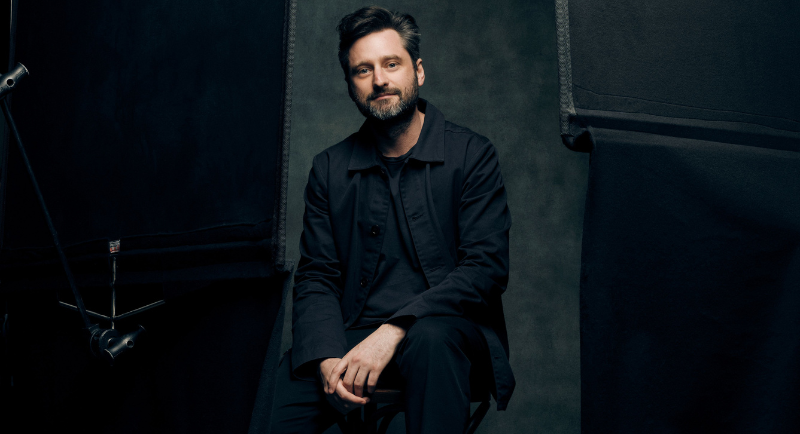
DDB Group Melbourne promotes new executive creative director
DDB Group Melbourne has promoted deputy executive creative director Giles Watson to executive creative director.
In his new role, he will lead the agency’s creative direction, continuing to bring his distinctive brand thinking and innovation to the agency’s client stable and working closely with chief creative officer Psembi Kinstan.
Watson joined DDB Group Melbourne in 2021 as a creative director and quickly built out the creative leadership team, boosting the agency’s creative thinking and craft.
In April last year, he was stepped up to the role of deputy executive creative director, bringing his generous leadership style and ambition to help grow the agency’s headcount to more than 100 and produce award-winning work for clients.
Watson has enhanced DDB Group Melbourne’s commitment to creating enduring ideas and distinctive brand worlds and driven effective campaigns like Movember’s ‘Mancestry’ and “the Mo is Calling”, Porsche’s ‘Taycan Arcade’, NGV’s ‘Creative Index’, and most recently the global launch of the “University of Dyslexic Thinking”.
Prior to joining DDB Group Melbourne, Watson worked at Clemenger BBDO and Howatson+Co, delivering campaigns like Matilda Bay’s ‘Rejected Ales’ and Snickers’ ‘Hunger Insurance’, which are still amongst the most awarded work for their respective agencies.
“Giles is the best in the business. He is the epitome of the modern creative that champions every medium and understands the power of a big idea,” Psembi Kinstan, DDB Group Melbourne, chief creative officer, said.
“No-one works harder to get to the most original and effective work – every part of our business is improved by his leadership. He’s superbly strategic, an incredible role model and a deeply trusted partner to our clients.”
Khia Croy, DDB Group Melbourne general manager, said: “From our first moments working together – many moons ago! – I have always had a great amount of respect for Giles, both professionally and personally. He is, and always has been, the embodiment of DDB’s ‘Talented and Nice’ philosophy – there is simply no greater partner for our clients, or leader for our team.”
Watson said of his promotion: “I was lucky enough to have joined a collection of incredibly ambitious minds here at DDB Melbourne – people who inspire me every day. I couldn’t be more excited (or intimidated) to now have this opportunity to join them in shaping our next chapter.”
Top image: Giles Watson
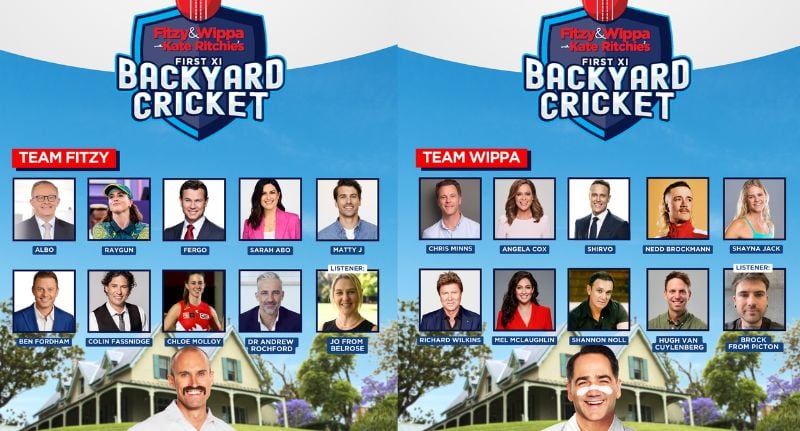
The PM joins Raygun, Ben Fordham and Fitzy and Wippa for Nova’s annual cricket match
Prime Minister Anthony Albanese will host today’s Fitzy & Wippa with Kate Ritchie’s First XI Backyard Cricket at Kirribilli House. The event will see team captains Fitzy and Wippa lead a competitive match featuring media and political figures.
Team Fitzy will mark Albanese’s third appearance in the game, while Premier Chris Minns will join Wippa’s side for his second match. Also appearing for Team Fitzy are Raygun, Mark Ferguson, Sarah Abo, Matty J, Ben Fordham, Colin Fassnidge, Chloe Molloy and Dr Andrew Rochford.
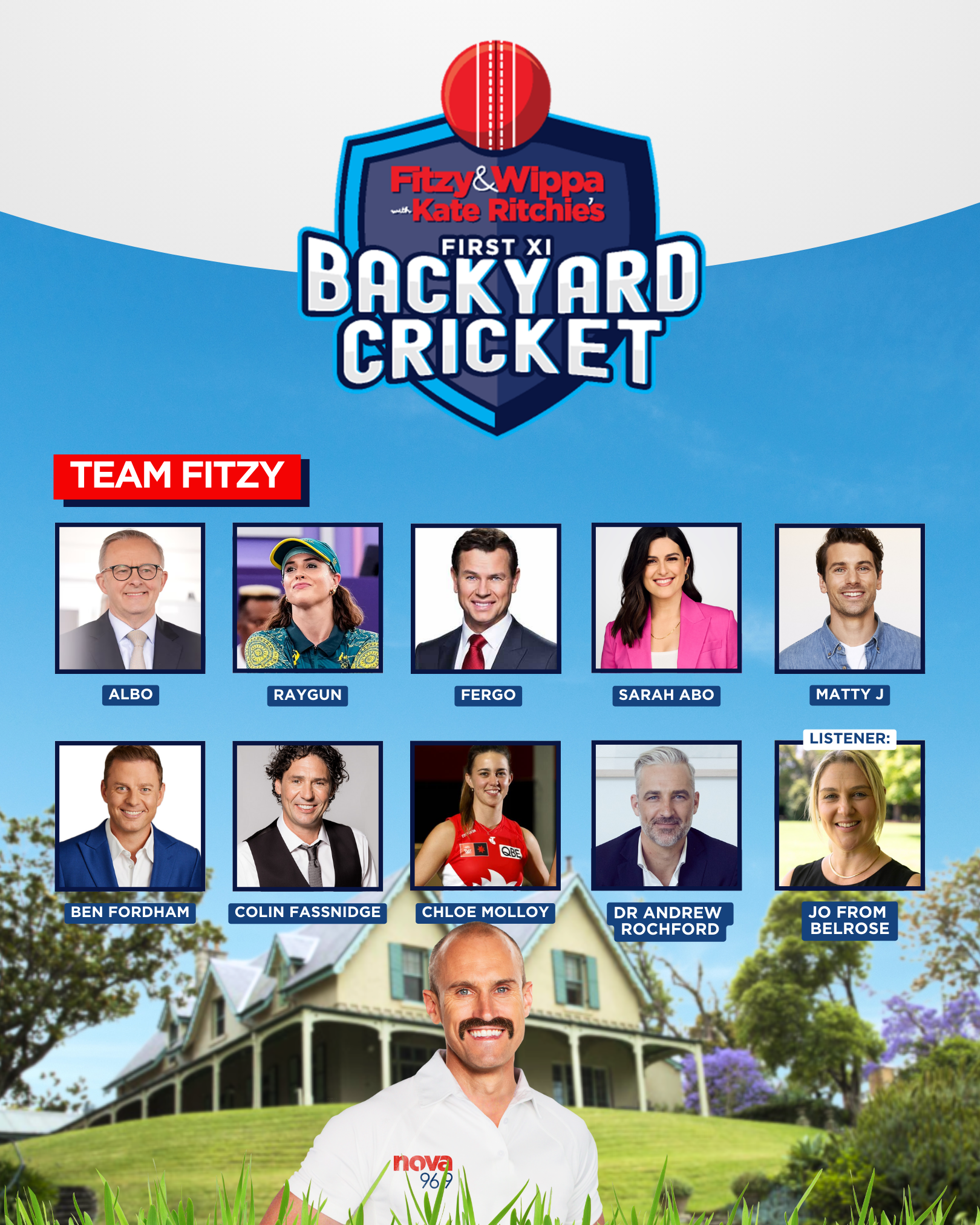
Fitzy’s team.
Meanwhile, Wippa’s squad features Matt Shirvington, Nedd Brockmann, Shannon Noll, Hugh Van Cuylenburg, Angela Cox, Shayna Jack, Mel McLaughin and Smooth FM’s Richard Wilkins, with two additional spots won by lucky listeners of Fitzy & Wippa with Kate Ritchie at breakfast.
The annual Backyard Cricket match, a high-profile event blending entertainment with community support, will see the team raise funds for Lifeline – providing nationwide 24-hour crisis support – and Batyr Australia, which works to foster stigma-free communities championing youth mental health and wellbeing.
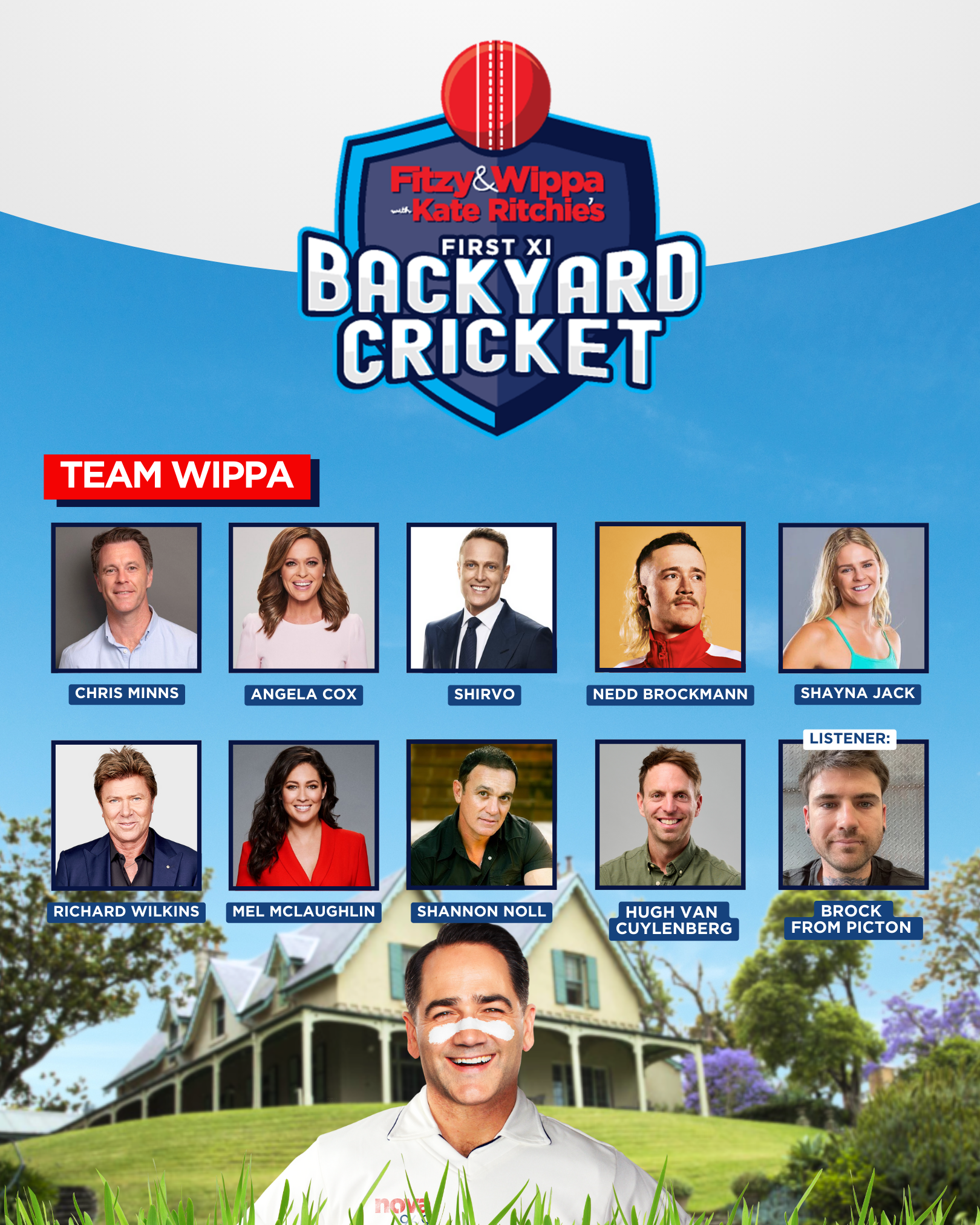
Wippa’s team.
Fitzy said of this year’s match, “Wippa, I hope you’’re ready, I plan on hitting more sixes than you can poke a bat at.”
While Wippa said, “Ready to roll, sorry bowl. It’s not about the size of the dog in the fight, it’s about the 45-year-old with a bad shoulder who can’t play cricket. May the best team win.”
Fans can head to @fitzywippakate socials throughout the day for all the action and to see who
takes home the trophy.
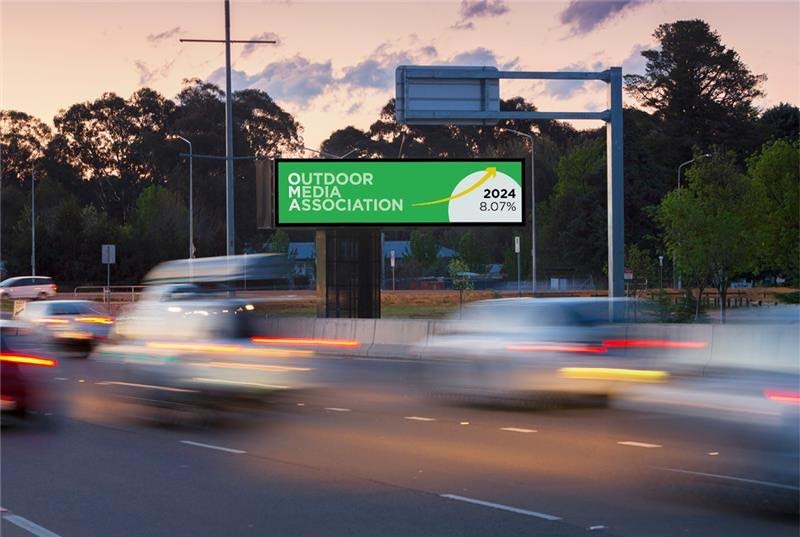
OOH industry sees 8% growth in 2024 as digital dominance continues
The Out of Home (OOH) industry in Australia has reported a robust 8.07% increase in net media revenue for 2024, reflecting ongoing growth and the continued expansion of digital formats. According to figures released by the Outdoor Media Association (OMA), the industry generated $1,301.8 million in net media revenue, up from $1,193.7 million in 2023.
Category breakdown: Roadside billboards lead growth
The increase in net media revenue was spread across all major OOH categories, with notable growth in the Transport sector and Retail, Lifestyle and Other segments. The full breakdown for 2024 compared to 2023 is as follows:
• Roadside Billboards (over and under 25 sqm): $540.7 million (up from $516.3 million)
• Roadside Other (street furniture, bus/tram externals, small format): $291.8 million (up from $271.3 million)
• Transport (including airports): $172.9 million (up from $141.2 million)
• Retail, Lifestyle and Other: $296.4 million (up from $275.7 million)
The Transport category saw the most significant percentage increase, rising 22.4% year-on-year, indicating strong advertiser demand in high-footfall transit environments such as airports, buses, and train stations.
Digital Out of Home (DOOH) continues to dominate
Digital Out of Home (DOOH) continues to be a major growth driver for the industry, now accounting for 75.2% of total net media revenue. This represents an increase from 73.4% in 2023, demonstrating the increasing shift towards programmatic, data-driven, and dynamic digital advertising solutions.
With digital technology allowing for greater targeting, flexibility, and measurement, DOOH’s share of the market is expected to continue growing as brands seek innovative ways to reach consumers in outdoor environments.
Strong year despite economic headwinds
The 8.07% growth in OOH revenue comes amid a challenging economic environment, with advertisers carefully assessing budgets in response to fluctuating consumer confidence. The industry’s ability to expand, particularly through DOOH innovation and improved audience measurement tools, has helped maintain momentum.
The Outdoor Media Association (OMA) estimates that it represents close to 100 per cent per cent of the Out of Home (OOH) industry in Australia. Figures provided in this media release are net figures (exclusive of commission, production, and installation). Figures represent advertiser campaigns posted in each quarter. Figures also include all direct sales which are estimated at 10 per cent of total bookings.

More data, more confusion? It’s time to figure out what’s going on with measurement
Marketing measurement has always been a challenge, but never more so than today. While digital measurement was never strictly straightforward, it was a lot simpler as we had cookies, clicks and conversions to fall back on.
I only have to think back to my own personal experiences in the early days of search marketing, programmatic and trading desks to realise just how quickly our technology, and ability to measure, has changed.
Now signal loss from privacy changes, platform fragmentation, and an ever-expanding range of measurement methodologies have made measurement one of the most complex and resource-heavy areas for marketers. Agencies, publishers and tech platforms are all racing to keep up, but the reality is that no single solution fits all.
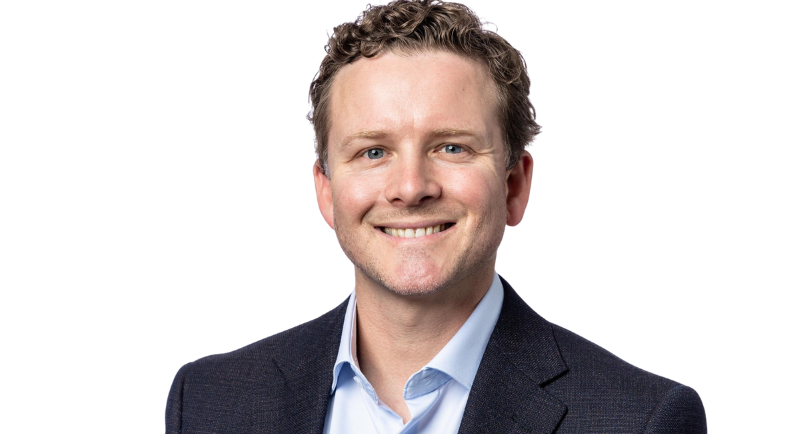
Dan Richardson
A perfect storm of factors has led to this untenable landscape of measurement complexity. Privacy-first changes from Google and Apple have diminished traditional tracking, while the rise of the multi-channel, multi-device and multi-platform world have meant attribution is a bigger question mark than ever.
At the same time, marketers have more measurement methodologies than they know what to do with. There’s marketing mix modelling (MMM), the rise of attention as a metric and privacy-enhancing technologies (PETs) like Google Privacy Sandbox. Data clean rooms are also gaining traction, enabling safer collaboration with data.
The result? Brands are overwhelmed. Yahoo’s own Pop Quiz research found that data knowledge is often siloed within a select few in organisations, meaning that the responsibility of understanding measurement – and data best practices more generally – is not shared within a team. This creates internal resistance to change, which is a significant drawback when things are changing so frequently.
This is an interesting phenomenon, especially when we consider new research from Skeleton Key which found that Australia is actually quite mature when it comes to data. However, we are held back due to a potent mix of weaknesses in organisational structures, tech stack implementation, challenges around privacy concerns, internal resistance and measurement methods.
The same research found that while Australians are willing to experiment, we are unsure of what solutions are available.
In other words, we are at a crossroads – where there’s an appetite to learn, but too many different paths and consequences to consider. But the simple truth is, if brands want to make sense of this new measurement landscape, simplification is key.
The cost of complexity
The explosion of measurement solutions has created an unintended consequence – many brands are prioritising quantity over quality. Some are collecting every data point possible, layering on multiple solutions in an attempt to gain clarity. But more data doesn’t always mean better insights.
The real challenge isn’t a lack of tools – it’s a lack of focus. Without clear business objectives, brands risk drowning in data without extracting meaningful insights. The most successful companies aren’t the ones adopting the most measurement tools, but those refining their approach based on what truly matters to their business.
So, how do brands cut through the noise?
1. Start with objectives, not tools: Too many marketers begin with the tools available instead of focusing on business needs. Instead, start by defining what success looks like and work backwards to determine the best measurement approach.
2. Prioritise data best practices: The urgency to adopt new measurement strategies has, in some cases, come at the expense of data hygiene. Privacy, compliance, and first-party data governance should remain a top priority for any marketer.
3. Avoid constant switching: The measurement landscape will continue to evolve, but jumping between strategies too frequently can dilute long-term effectiveness. Instead, invest in a framework that allows for flexibility while maintaining consistency.
4. Demystify measurement internally: Knowledge should not be locked within a select few in an organisation. Investing in education and cross-team collaboration can help businesses make better, more informed decisions.
At this stage, I’d be remiss if I didn’t mention how new AI-driven measurement techniques are becoming more prevalent and how optimisation has evolved. Once upon a time (or more accurately, about a decade ago when I joined Yahoo), it was almost a fireable offence to bore clients with talk of algorithms.
But in 2025, the reverse is now the truth. It’s AI’s time to shine, with algorithms becoming more composable and providing significant cost-efficiencies. It’s no wonder AI has become a real game changer.
Modelled conversions and synthetic data (such as AI panels trained on real human datasets) are also starting to shape the next phase of market research. But as with all new innovations, brands must evaluate these solutions carefully, ensuring they align with business goals rather than adding unnecessary complications.
At the same time, MMM is becoming increasingly prevalent as brands seek a long-term, privacy-safe measurement approach. However, it’s crucial to recognise the distinction between attribution and contribution. MMM offers a high-level view of what’s driving business performance, but it doesn’t replace attribution modelling, which helps track short-term, digital-driven performance. The best approach is a mix – leveraging both to get a full-funnel view of marketing effectiveness.
The old ways of measurement are deteriorating and the new landscape is complex – but that doesn’t mean brands should panic. Instead, this is a pivotal moment to build a solid measurement foundation that will last well into the future.
Rather than chasing every new solution, brands should take a step back, clarify their objectives and invest in a simplified, tailored approach. The future of measurement isn’t about finding the most solutions – it’s about finding the right ones.
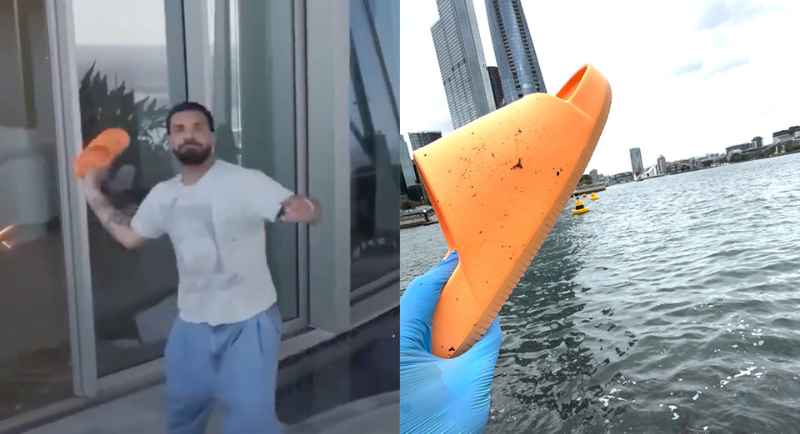
Slide for what? Drake reacts to Sydney Water’s Instagram call out via It’s Friday
Drake has responded to Sydney Water’s Instagram post asking him to keep the city’s waterways beautiful after a video of him throwing an orange slide at a drone supposedly spying on his Crown Towers penthouse went viral.
The tactical Instagram post, shared last Friday via creative agency It’s Friday, features a video that opens on Crown Towers and pans down to a rocky harbourside ledge, where the orange slide is seen washed up on the shore. A gloved hand picks up the slide.
The caption reads, “Hey Drake, this yours?? Hope you’re enjoying our beautiful city – but let’s keep it that way.” It goes on to invite Drake to pick up the slide at Sydney Water’s reception desk, where he can also enjoy a complimentary ‘Warragamba Slammer’ (a bottle of Sydney Water).
View this post on Instagram
The very next day, the Canadian rapper shared the Sydney Water video with his 143 million Instagram followers, further fuelling the growing online global conversation. Drake has yet to claim the slide (or the bottle of water).
With his massive following, Drake’s repost generated more buzz, and Sydney Water’s agile response garnered millions of views, shares, and comments.
In two days, reactions, speculation, and commentary have exploded, with over 7 million views on Sydney Water’s account alone, along with over 92,000 shares, 2,000+ comments and nearly 300K likes.
The interaction received news coverage from outlets like Forbes and Channel 7’s Sunrise. Brands, including Uber and Big W, have also joined the conversation.
“Big cultural moments that are relevant to a brand don’t come along every day, so when they do, you have to move with lightning speed. So that’s exactly what It’s Friday and the team have done, and the results reflect the power of that agility,” Tim Barrett, digital marketing manager for Sydney Water, said.
Vince Lagana, CCO / Co-founder of It’s Friday, added, “Credit to Sydney Water for jumping on the opportunity instantly. The response has unbelievable.”
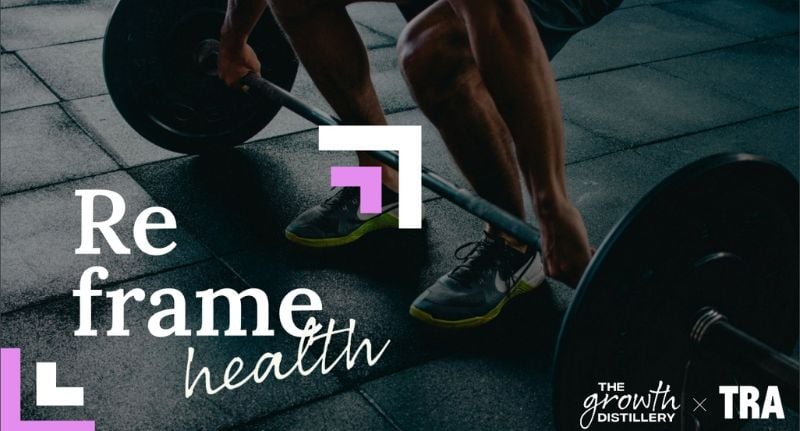
New research reveals consumer confidence as key for health and wellness brands
The Growth Distillery, in partnership with The Research Agency, has released fresh insights into the health and wellness market. The study finds that consumer confidence is essential for brands to distinguish themselves and build trust and loyalty in a competitive landscape.
The research highlights that while Australians remain committed to prioritising their health, over 40 per cent feel overwhelmed by the array of available options, and nearly half express some level of skepticism towards the sector. The findings underscore the importance of cultivating consumer confidence to drive trust, loyalty, and advocacy.
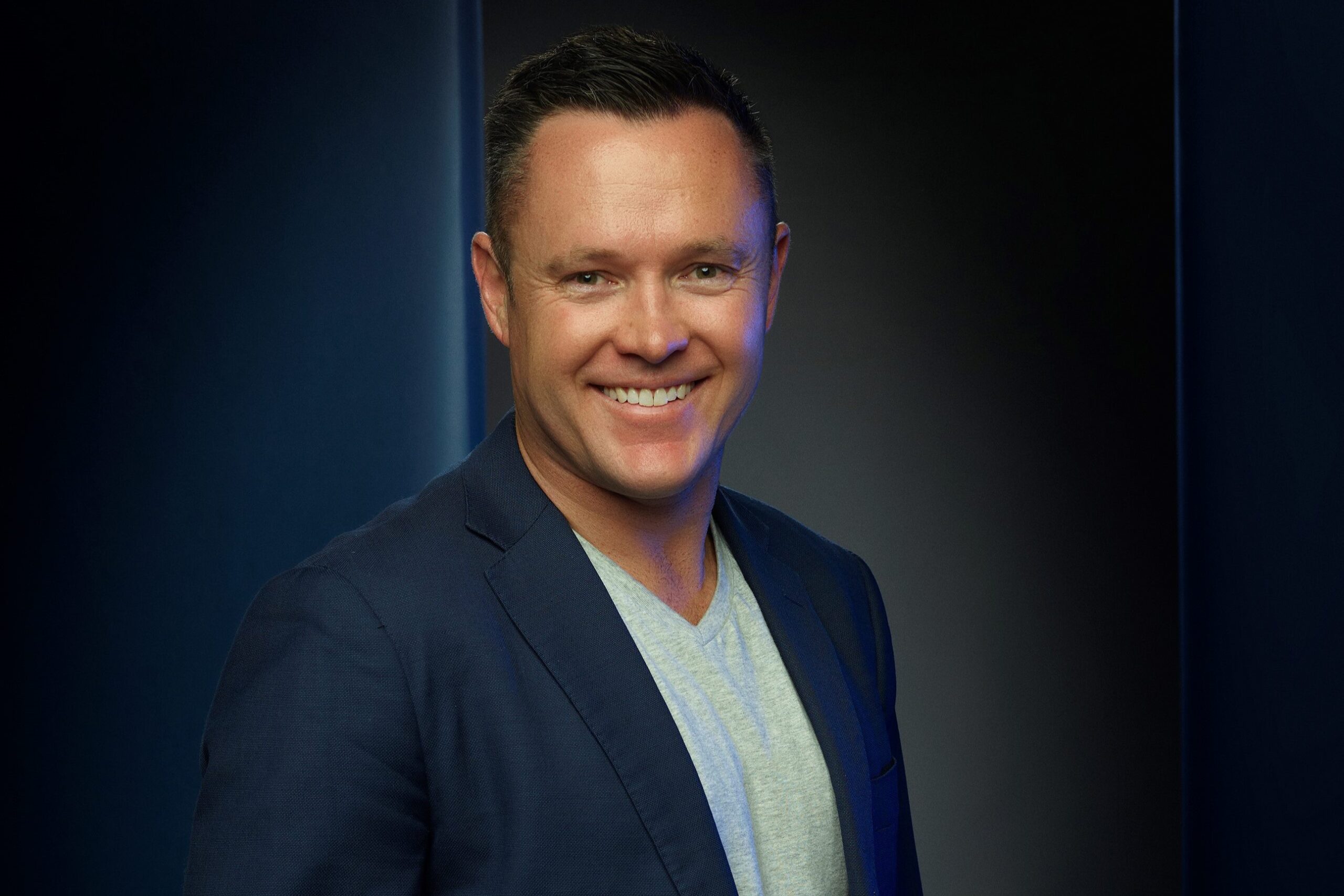
The Growth Distillery’s Head of Growth Intelligence, Leigh Lavery.
Key findings
• Nearly 70 percent of health consumers only buy products they have confidence in.
• Over 60 percent are unlikely to switch from products they trust to try something new.
• Consumers are almost four times more likely to recommend products they trust.
The study highlights that consumer confidence depends more on the delivery of a brand’s message than the content alone. Findings show that audiences tend to navigate purchase decisions along a continuum – from those who rely on instinct (‘intuition’) to those who prefer evidence-based details (‘control’) when assessing value propositions. This insight offers marketers a strategic framework for tailoring communications that effectively engage and resonate with diverse consumer segments.
The study identifies four strategic pathways for brands: Driven discipline, approachable authority, wise warmth, and kindred connection. Each approach is built on four key elements that marketers can leverage to empower consumers and drive action in a competitive market.
• Initiate: signals that foster a sense of control.
• Inspire: comms that illustrate the desired goal.
• Influence: use of real people that create a personal connection.
• Integrity: proof points that showcase values and identify.
The Growth Distillery’s head of growth intelligence, Leigh Lavery, said: “This work underscores the importance of reframing confidence as the most valuable asset for brands in the health and wellness sector. The way you communicate with your ideal customers – along with the proof points you provide – forms the foundation for building trust and standing out in an increasingly complex and cluttered marketplace.”
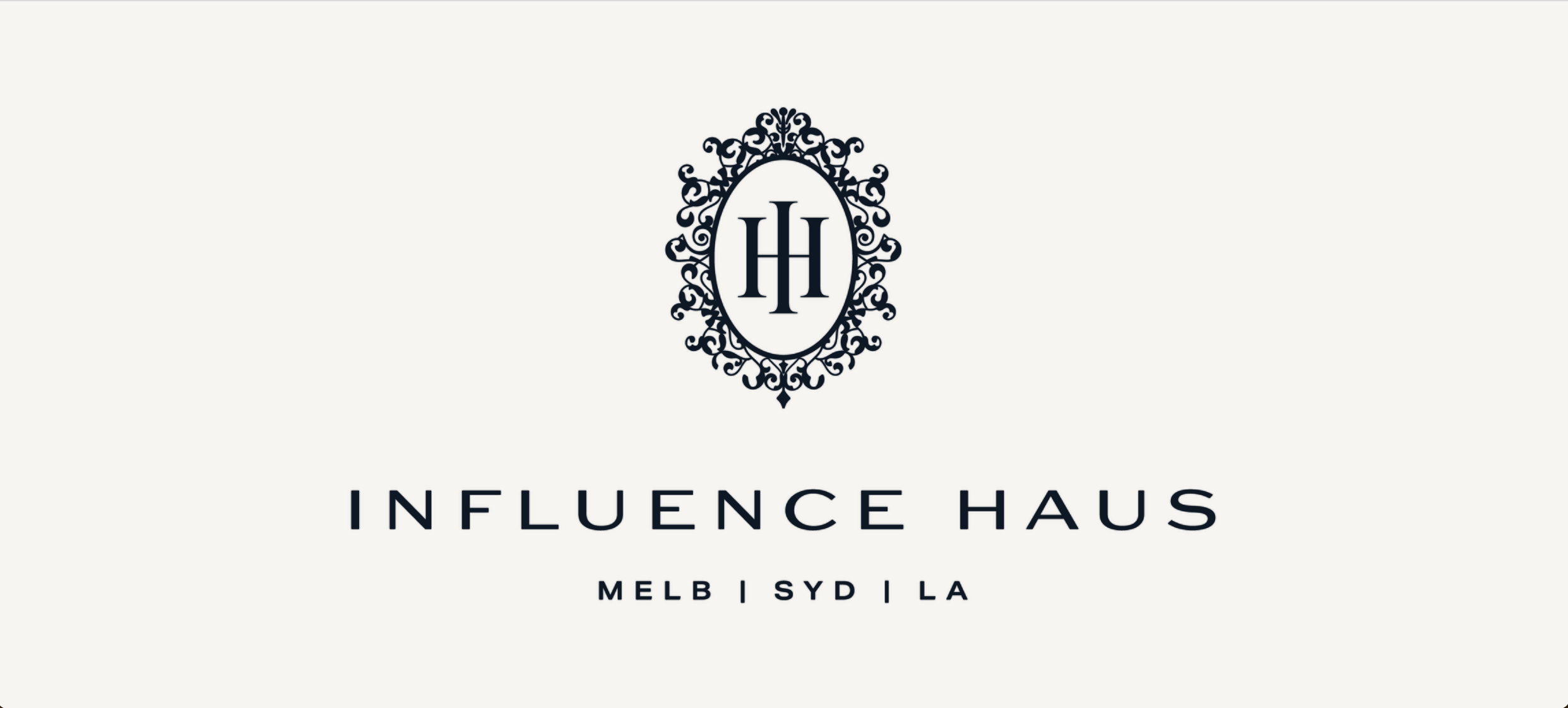
Publique Agency rebrands as Influence Haus, signalling a new era in PR and digital marketing
Leading Australian public relations and digital marketing firm Publique Agency has announced a major rebrand, officially relaunching as Influence Haus. The move reflects the agency’s evolving focus on influencer marketing, brand management, content creation, and next-generation digital strategies.
With offices in Melbourne and Sydney, Influence Haus will continue to offer comprehensive PR and marketing services, including social media management, event production, talent management, and procurement, while expanding its expertise in UGC content and brand amplification.
CEO and Founder Caleb Yorke says the rebrand represents the agency’s commitment to staying ahead of industry trends and delivering high-impact campaigns.
“Our rebranding to Influence Haus represents our evolution and dedication to staying ahead in the dynamic world of public relations and marketing,” said Yorke.
“We are excited to continue delivering innovative and impactful campaigns that drive influential success for our clients.”
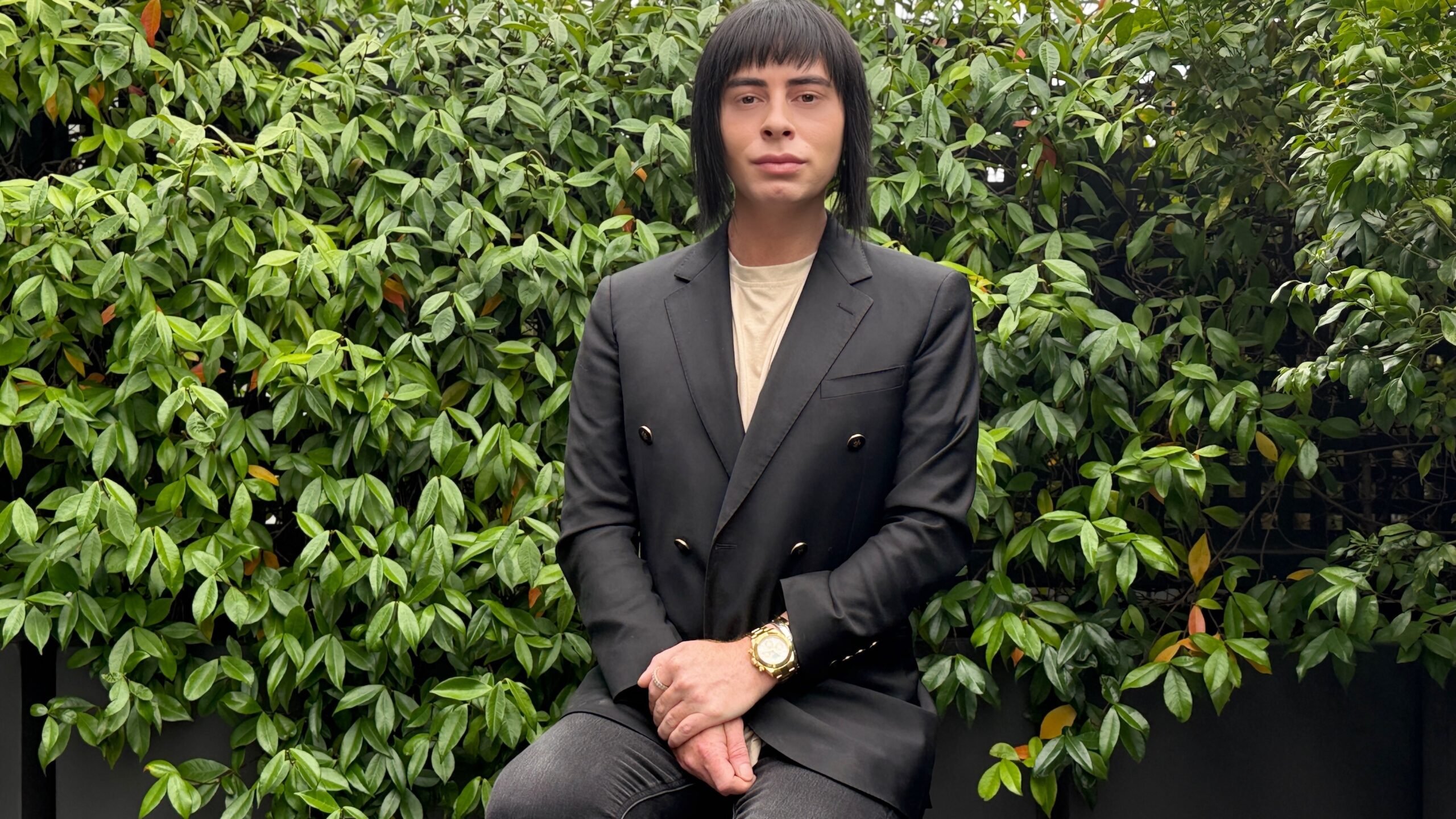
Caleb Yorke, CEO, Influence Haus.
As influencer marketing and digital content creation become more integral to brand strategy, Influence Haus aims to provide tailored solutions that amplify brand visibility and engage audiences effectively. The agency has hinted at a new suite of services coming soon, designed to further maximise ROI, influence, and impact for clients.
“The shift to Influence Haus is more than just a name change, it’s a reflection of where the industry is heading and where we see the most impact for brands,” Yorke said.
“We’re doubling down on innovative strategies that blend PR, influencer marketing, and content creation to drive real, measurable results.”
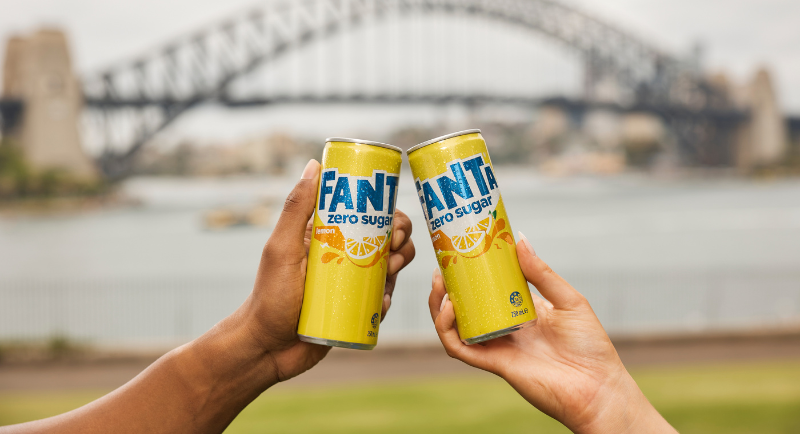
Coca-Cola revives ‘Wanta Fanta’ campaign ahead of Lemon flavour
The Coca-Cola Company has released the latest “Wanta” campaign for the upcoming launch of Fanta Lemon in Australia.
The campaign is designed to resonate with young Aussies’ desire for balance and enjoyment and encourage young Aussies to embrace life’s little indulgences.
Fanta Lemon’s launch in Australia follows successful releases in Europe, the UK, and the US and marks the first addition to the Fanta lineup since the launch of Fanta Pineapple in 2023.
The “Wanta Fanta” campaign reimagines the classic Fanta slogan, leveraging a modern rendition of the iconic jingle to connect with young Aussies’ pursuit of work-life balance. The campaign highlights the challenge of balancing responsibilities with enjoyment, reminding fans to prioritise what they “Wanta,” like the simple pleasure of a 3pm-pick-me-up
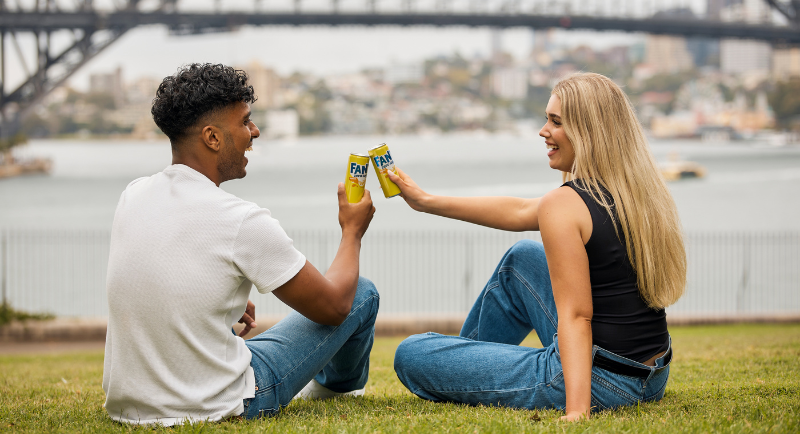
“We’re thrilled to bring Fanta Lemon to Australia,” Kate Miller, marketing director at Coca-Cola Australia, said.
“The ‘Wanta Fanta’ campaign, launching alongside the Fanta Lemon, which is available in both regular and Zero Sugar options, delivers a refreshing twist on the bold, zesty flavour fans love. We know young Aussies are constantly seeking new and exciting experiences, so we’re constantly driving product innovation and are confident Fanta Lemon will deliver,” she added.
Fanta Lemon and Fanta Lemon Zero Sugar 600mL PET bottles will be available in supermarkets, petrol stations, and convenience stores from the end of February. From mid-March, Fanta Lemon will also come in 375ml cans, 6x250ml mini cans, and 1.25L bottles, and be available for purchase across supermarkets and select retailers
Fanta has been produced and sold in Australia for 70 years, with Fanta Lemon being the newest addition to the current Fanta range, which includes orange, pineapple, grape and raspberry.
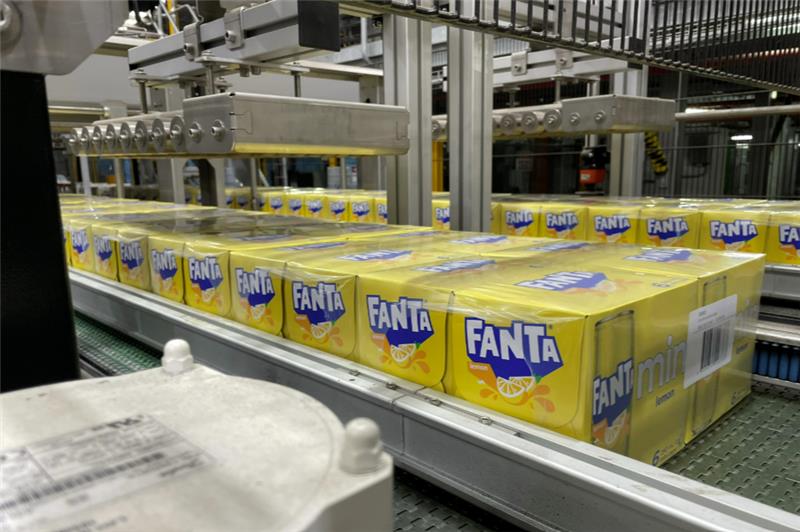
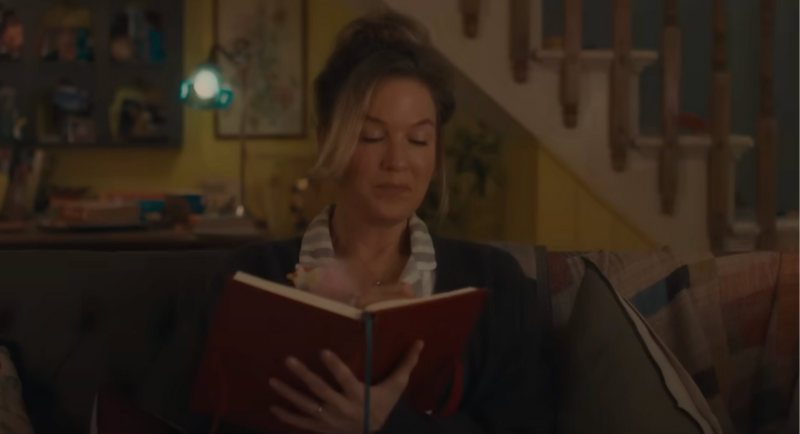
Box office: Bridget Jones claims the crown from Captain America
1. Bridget Jones: Mad About the Boy
Now in its second week at the Australian box office, Renée Zellweger reprises her role as Bridget Jones, continuing to delight audiences with the next chapter of her life. Now a single parent, Jones balances parenting two young children, a demanding career, and the chaos of modern dating as she finds herself torn between a younger admirer and the unexpected possibility of romance with her son’s science teacher.
Total Australian Box Office gross to date: $2,808,658
2. Captain America: Brave New World
The latest instalment to Marvel Cinematic Universe drops down to number two at the box office. With Sam Wilson (played by Anthony Mackie) taking over as Captain America from friend Steve Rogers (Chris Evans), he finds himself at the centre of an international incident after meeting with President Thaddeus Ross
Wilson and the new Falcon, Joaquin Torres (played by Danny Ramirez) are thrust into a crisis and must uncover the motive behind a sinister global scheme.
Total Australian Box Office gross to date: $2,440,019
3. Ne Zha 2
Mainting the third spot at the Australian box office is the Chinese animated fantasy adventure Ne Zha 2. The film follows the events of the first film, that see Ne Zha and Ao Bing survive the catastrophe by becoming Spirits. To stop from completely dissipating, Taiyi plans to rebuild Ne Zha and Ao Bing’s mortal bodies with the Seven-colored Precious Lotus. But amid the reconstruction, there are many obstacles.
Total Australian Box Office gross to date: $1,504,128
4. The Monkey
The horror/comedy, written and directed by Osgood Perkins, follows twin brothers Bill and Hal (played by Theo James) who find a wind-up monkey that begin a series of outrageous deaths that tear their family apart. Twenty-five years, the cursed toy resurfaces, unleashing a new wave of terror and forcing the estranged siblings to face their dark past.
Total Australian Box Office gross to date: $581,152
5. Chhaava
The Indian Hindi-language historical action film based on the life of Sambhaji, the second ruler of the Maratha Empire. Directed by Laxman Utekar and produced by Dinesh Vijan under Maddock Films, the film is an adaptation of Shivaji Sawant’s Marathi novel Chhava.
Total Australian Box Office gross to date: $432,986
6. A Complete Unknown
7. Conclave
8. Heart Eyes
9. MACBETH: David Tennant & Cush Jumbo
10. Mufasa: The Lion King
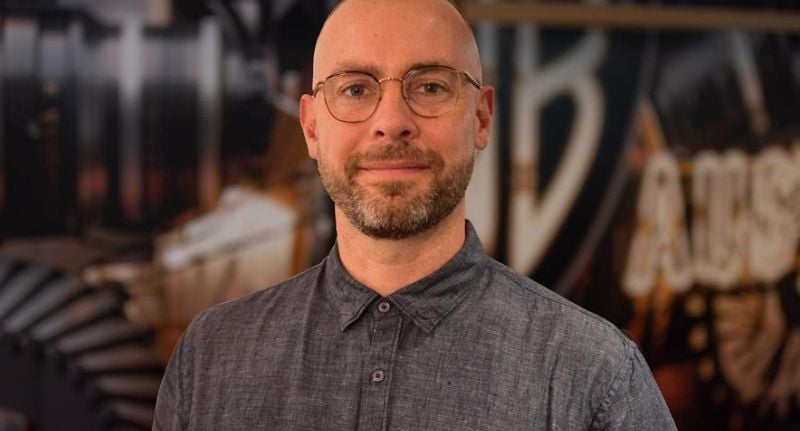
WBITVP Australia appoints new head of format sales
Warner Bros International Television Production Australia (WBITVP Australia) has announced the appointment of James Collins as its new head of format sales.
In this role, Collins will lead the development, pitch, and sale of local and international unscripted television content, reporting directly to Michael Brooks, managing director of WBITVP Australia and general manager of Warner Bros. Discovery ANZ. His appointment also places him as a key member of the company’s executive team.
The company says Collins will bring extensive industry experience to the position, having previously contributed to WBITVP Australia on the TV production side. Most recently, he played a pivotal role in developing Ronde Media’s production slate, and before that, he served as head of development and content at Entain, where he oversaw long-form production content.
Brooks, who has been with Warner Bros. Discovery since 2016, said the team “are thrilled to welcome James back to WBITVP Australia”.
“His extensive experience in content development and his deep understanding of the industry make him the perfect fit for this role as we look to expand our production footprint with both local and international partners,” he said.
Collins, meanwhile, credits his previous experience with WBITVP as vital to helping him navigate his new role. “Having worked with WBITVP Australia before, I know first hand the company’s commitment to delivering world-class content,” says Collins. “I’m excited to step into this role and help drive the development and expansion of innovative unscripted formats across multiple markets.”
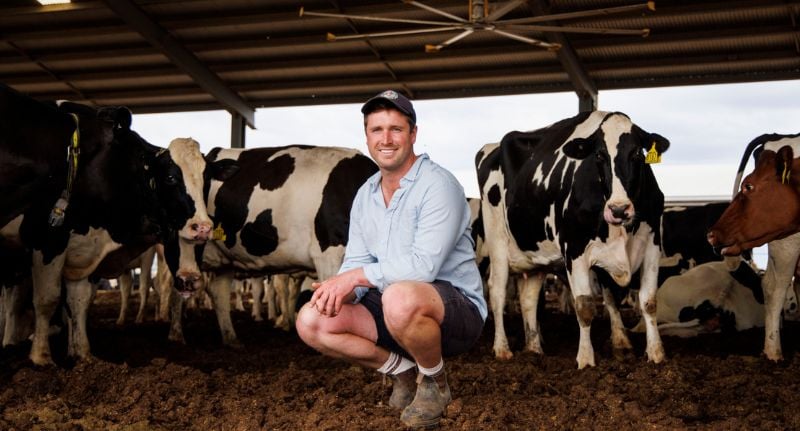
The Weekly Times Coles Farmer of the Year revealed for 2024
The Weekly Times, Australia’s longest-running rural and regional news brand, has partnered with Coles to honour the nation’s agricultural industry at the 13th annual Farmer of the Year Awards.
Penny Fowler, Herald and Weekly Times chairman and News Corp Australia’s community ambassador, highlighted the event as a recognition of the passion, innovation, and dedication of those in the agribusiness sector.
“In an effort to feed, clothe and sustain a growing world population, our farmers are constantly looking outside the box to both grow their businesses and the wider industry, which is truly world-leading,” Fowler said.
Coles Group chairman, James Graham, added: “This year’s finalists and winners showcase the new generation of farmers who are leading the charge towards innovation and a more sustainable future.”
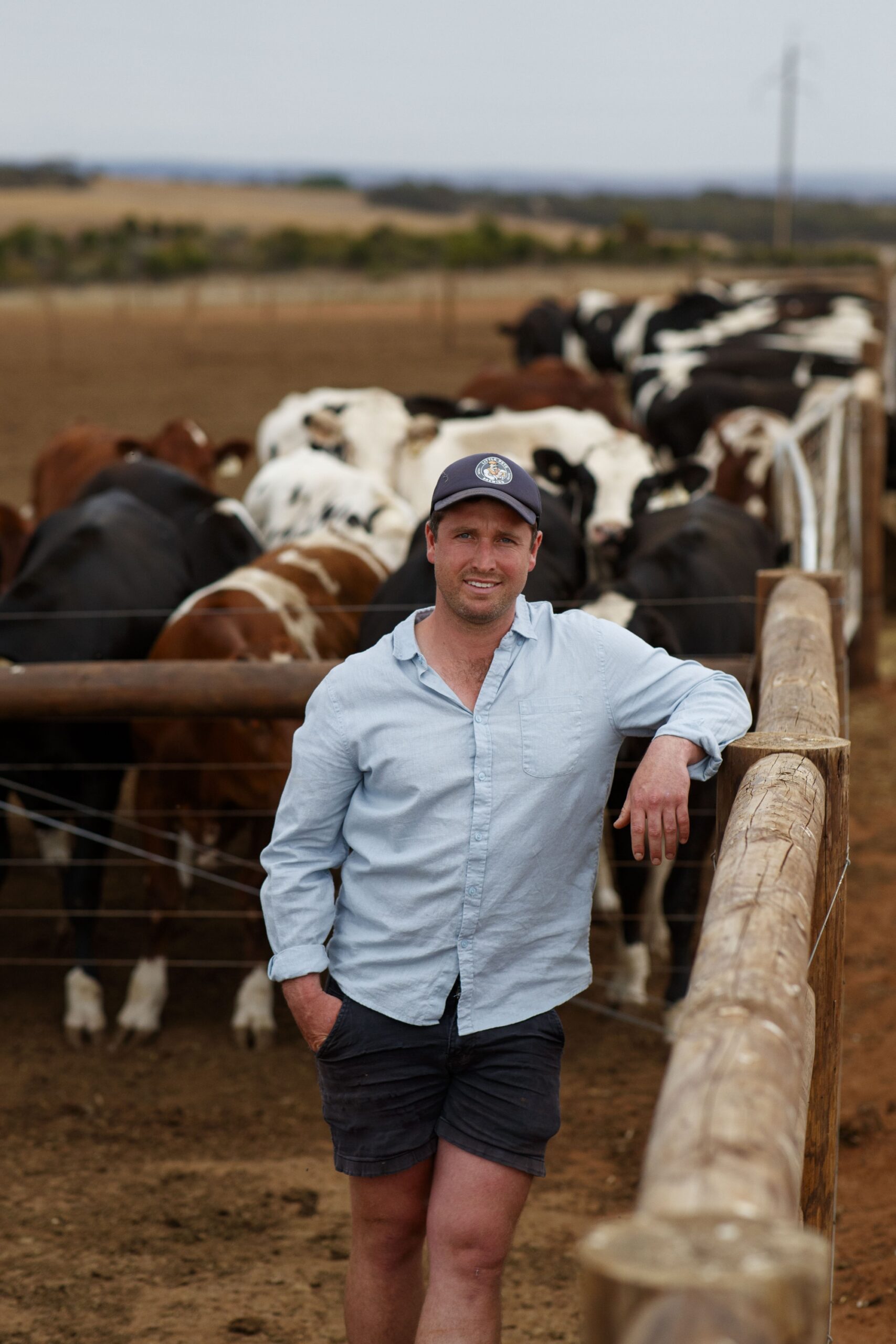
Farmer of the Year award winner Jake Altmann, who operate a zero-grazing dairy farm in Murray Bridge, SA.
The awards
The winner of this year’s Farmer of the Year award has been presented to David, Karen, and Jake Altmann, who operate a zero-grazing dairy farm in Murray Bridge, South Australia. Their high-intensity operation milks 500 cows three times a day.
By implementing an innovative feeding approach that incorporates a diverse range of nutrients, the Altmanns’ have increased average daily milk production from 33 litres per cow to 38-40 litres.
Jake said: “The cows are healthier, happier, the condition on the cows is better than when we were on a pasture based system, we are not wasting feed, they are not in the elements, have fans and sprinklers to cool them down in summer, and in winter they can curl up in the barn and be warm and don’t have to walk through mud.”
According to The Weekly Times editor James Wagstaff, awareness around farming has grown in recent years, particularly following the supply chain shocks of the pandemic.
“I think there’s greater recognition of what farmers do now as a result of COVID,” he says. “People went to their local supermarket, and when the meat wasn’t there, it reinforced just how vital this industry is. These guys are amazing in what they do.”
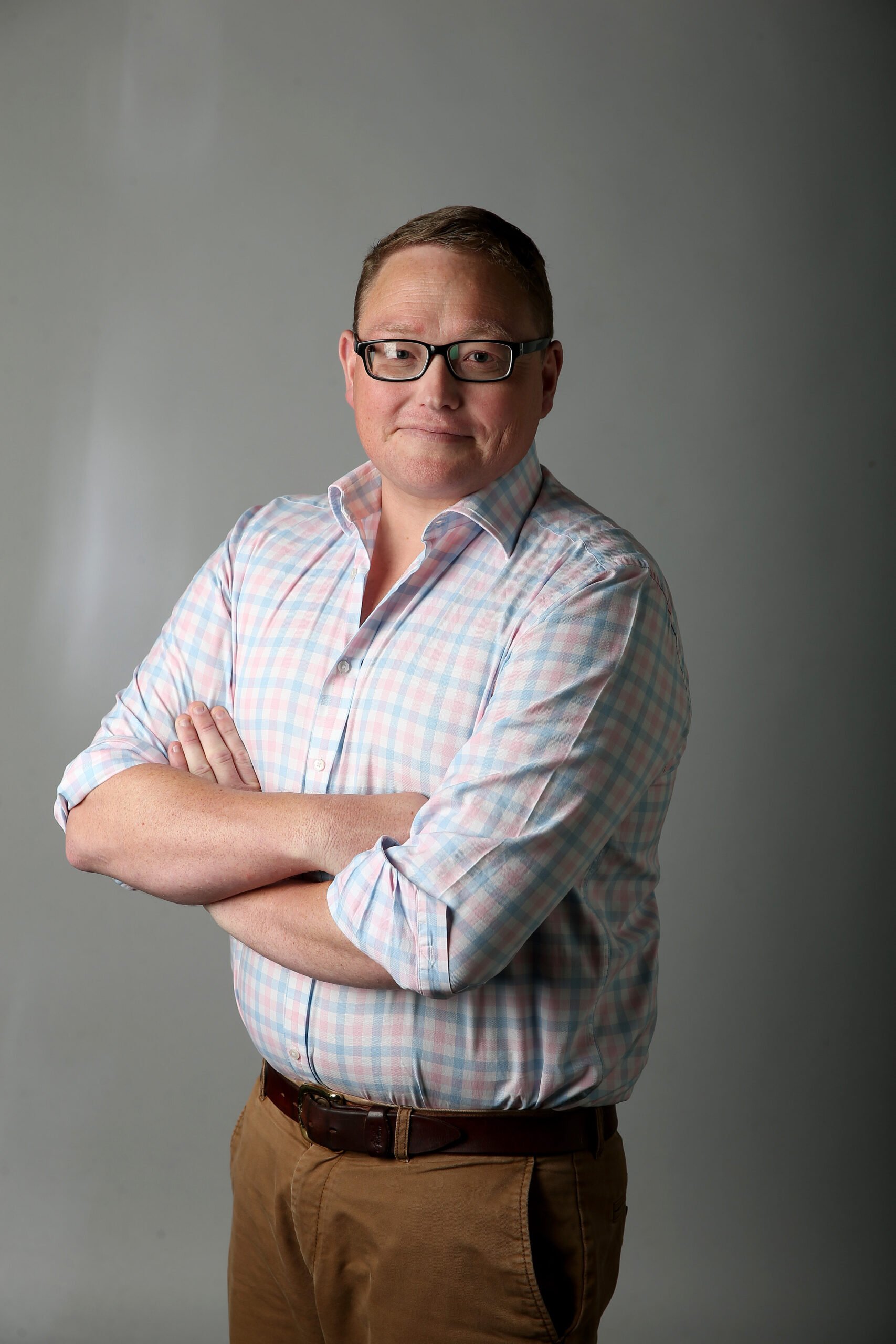
The Weekly Times editor James Wagstaff.
A rigorous selection process
The award isn’t just about celebrating traditional farming success – it recognises innovation, sustainability, and leadership. Every year, 250 entries are carefully reviewed, with finalists selected from stories featured in The Weekly Times over the past 12 months.
Wagstaff explains: “At the end of the year, we sit back with our journalists and go through story by story, interview by interview – who’s doing things that are really out of the box?”
From there, a panel of independent judges rigorously debates the finalists. “Sometimes the discussion takes two hours, sometimes we walk away and come back the next day,” Wagstaff says. “The quality of entries is really, really amazing.”
While winning the award provides industry recognition, it’s also about amplifying the voices of those shaping the future of farming. “We look for people who are just doing amazing things on their own farm, but also leaders in their field,” Wagstaff says. “People who want to see the industry thrive.”
News Corp Australia’s commitment to rural communities
Beyond the prestige, the Farmer of the Year award is backed by News Corp Australia (NCA), with the company playing a crucial role in ensuring these stories reach audiences across the country.
“The commitment from NCA is incredible – they have been so loyal,” Wagstaff says. “We’ll have winners’ stories in the major metro papers this week. It’s something the company really gets behind.”
This exposure is invaluable, not just for the winners, but for the industry as a whole. Wagstaff notes that city readers are increasingly engaged with agricultural stories. “People love picking up The Daily Telegraph in the western suburbs and reading about where their food comes from or learning about real Australians.”
With a growing focus on sustainability and innovation, farming is evolving rapidly, and initiatives like The Weekly Times Coles Farmer of the Year help ensure that Australia’s agricultural pioneers get the recognition – and the platform – they deserve.
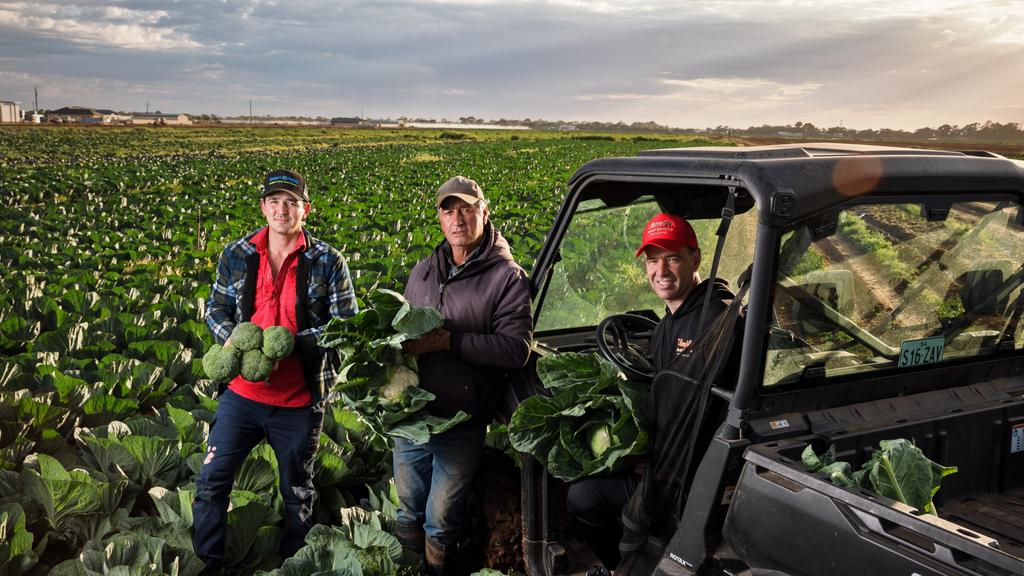
Horticulture Farmers of the Year, the Musolino family from SA.
Winners of The Weekly Times Coles 2024 Farmer of the Year Awards
Overall winner and Dairy Farmer of the Year: Altmann Family, Dakara Farms, Murray Bridge, SA
Beef Farmer of the Year: Hammond Family, Robbins Island Wagyu, Montagu TAS
Cropping Farmer of the Year: Duncan Young, Beverley WA
Horticulture Farmer of the Year : Musolino Family, T Muso & Co, Virginia SA
Sheep Farmer of the Year: Kerin Family, Kerin Agriculture, Yeoval NSW
Innovative Farmer of the Year: Said Family, Fresh Select, Werribee South VIC
Pictured: Farmer of the Year, Jake Altmann

Snap launches tiered brand suitability solutions for advertisers
Snap has launched brand suitability solutions to give advertisers more control over content adjacency on the platform.
Advertisers will be able to select the most appropriate level of control for a campaign, which ensures alignment with the brand’s values and preferences.
The brand suitability controls offer increased choice and flexibility by allowing advertisers to determine the content and publishers their ads may appear alongside.
Advanced machine-learning technology further enhances the platform’s capabilities by categorising content into Snapchat’s inventory tiers based on sensitivity and risk levels. This real-time content adjacency placement gives advertisers the confidence to align their campaigns with their selected suitability tier, including Full, Standard, and Limited tier options, along with expanded placement coverage.
Snapchat has also integrated third-party brand safety solutions for post-campaign reporting, working with third-party measurement partners. Advertisers will have the ability to set their suitability preferences when creating ad sets within Ads Manager, with real-time updates to campaign estimations, such as reach, impressions, and audience size. This inventory filter applies to all inventory sources under the selected ad set.
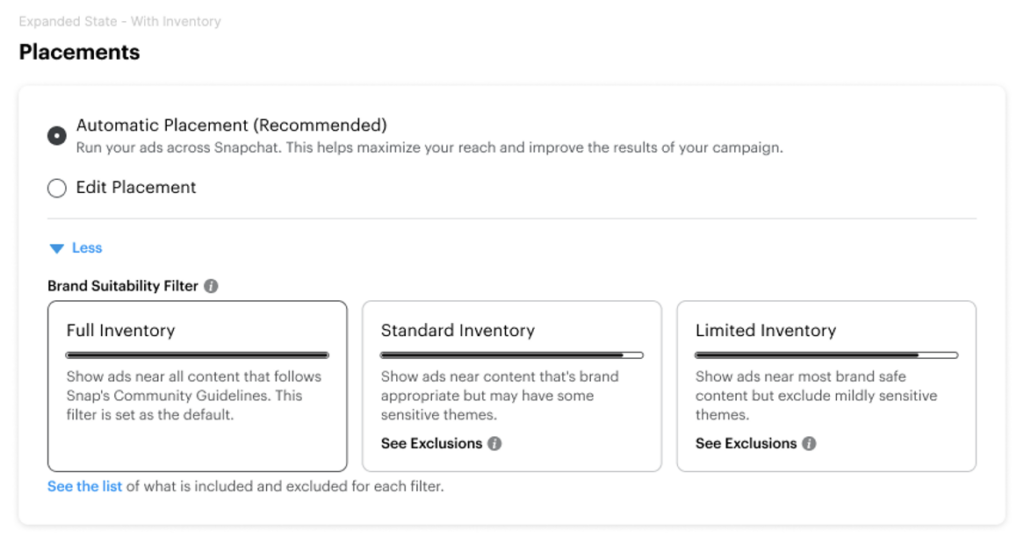
The brand suitability controls offer increased choice and flexibility by allowing advertisers to determine the content and publishers their ads may appear alongside.
New Measurement Partnerships on Snap
Snapchat has expanded its measurement partnerships, strengthening in addition to its existing collaboration with Integral Ad Science (IAS). The platform is now partnering with measurement providers DoubleVerify and Zefr to enhance measurement capabilities and offer advertisers best-in-class reporting on brand safety, as well as suitable performance for campaigns on the platform.
Snapchat’s recent live measurement solution with IAS found that over the last 30 days, Spotlight and Creator Stories content has maintained an average of 99% brand safety compliance. The integration of third-party measurement solutions provides advertisers with additional reporting options, ensuring a comprehensive approach to content adjacency and brand suitability.
Ongoing Commitment to Brand Safety
Snapchat said that it remains dedicated to fostering a safe and positive environment for its community and partners. The platform will continue to explore new solutions and strengthen partnerships with industry leaders to uphold the highest standards of brand safety and suitability.

Digital audio revenue reaches $313M in CY24
New data from IAB Australia shows that total digital audio advertising revenue reached $313 million in CY24 – a rise of 18% year-on-year – with the December quarter contributing $90 million.
Milton Data reports that Commercial Radio & Audio (CRA) members experienced a 30% year-on-year increase in digital audio revenue, outpacing the broader IAB market’s 18% growth.
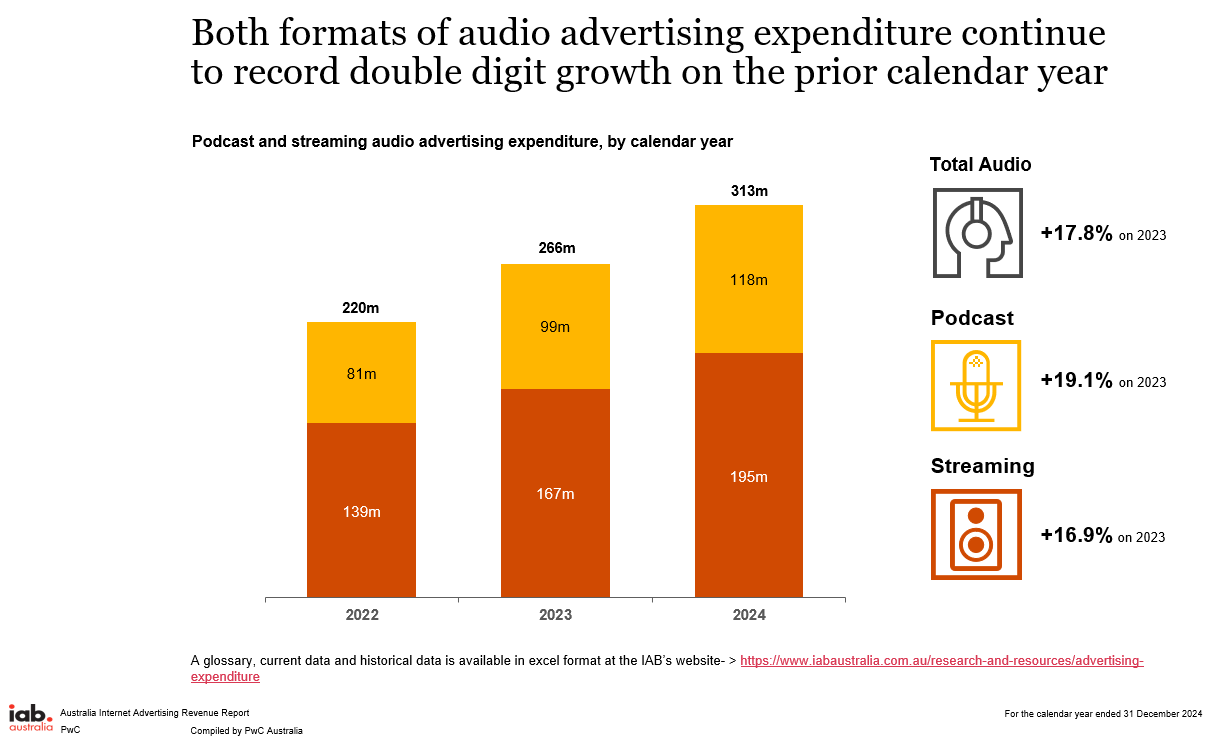
Source: IAB Australia.
According to the Australian Internet Advertising Revenue Report (IARR) compiled by PwC, podcast advertising expenditure is the fastest-growing reported format for the second consecutive quarter.
In Q4 2024, podcast ad spend grew 24.3% year-on-year, totalling $33.6 million, reflecting a notable increase in advertiser confidence.
Strong audience engagement is behind he growth in podcast advertising, with data showing that 11 million Australians tune into podcasts every month. Among key demographics, 56% of 25–54-year-olds listen to podcasts at least once a month.

Source: IAB Australia.
CRA chief executive officer, Lizzie Young, said: “It’s pleasing to see CRA members driving digital audio growth and capturing a larger share of the market. This momentum highlights a shift in market dynamics towards premium locally produced content, demonstrating the growth of digital distribution reaching audiences on their terms, and the opportunity for advertisers to leverage scale and engagement that is efficient and effective”
The IAB data also showed that streaming audio advertising achieved double-digit year-on-year growth, generating $56 million in Q4 2024.
Within this sector, online radio streaming continues to gain traction. Data reveals that 42% of 25–54-year-olds listened to online radio in the past month – a figure that has nearly doubled since 2021.
The full IAB Australia IARR report can be found here.
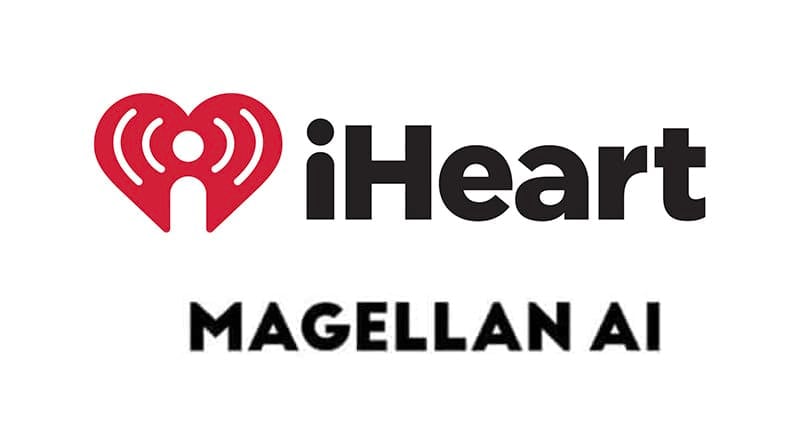
Airbnb tops Q4 podcast ad spend rankings
ARN’s iHeart and Magellan AI have unveiled the top 15 brands investing in Australian podcast advertising for Q4 2024, with Airbnb emerging as the leading investor in the medium.
Airbnb, a consistent presence in the top 15, ramped up its podcast ad spend ahead of the holiday season, investing across several Australian podcasts, including She’s On The Money, Mamamia Out Loud, Toni & Ryan, and Straight Talk with Mark Bouris.
ARN’s head of digital audio, Corey Layton, said: “As Australia’s fastest growing mass medium, advertising on podcasts is pivotal to any marketing plan, with the medium unmatched when it comes to genuine engagement. Thanks to Magellan AI, it is brilliant to witness the continued investment and depth of brands investing into the space.”
The report also highlights a 39% year-on-year increase in investment in the True Crime category, following its status as the second most listened-to genre in Australia, alongside other major advertisers such as McDonald’s, Teladoc Health, and Commbank representing sectors across technology, finance, retail, and healthcare.
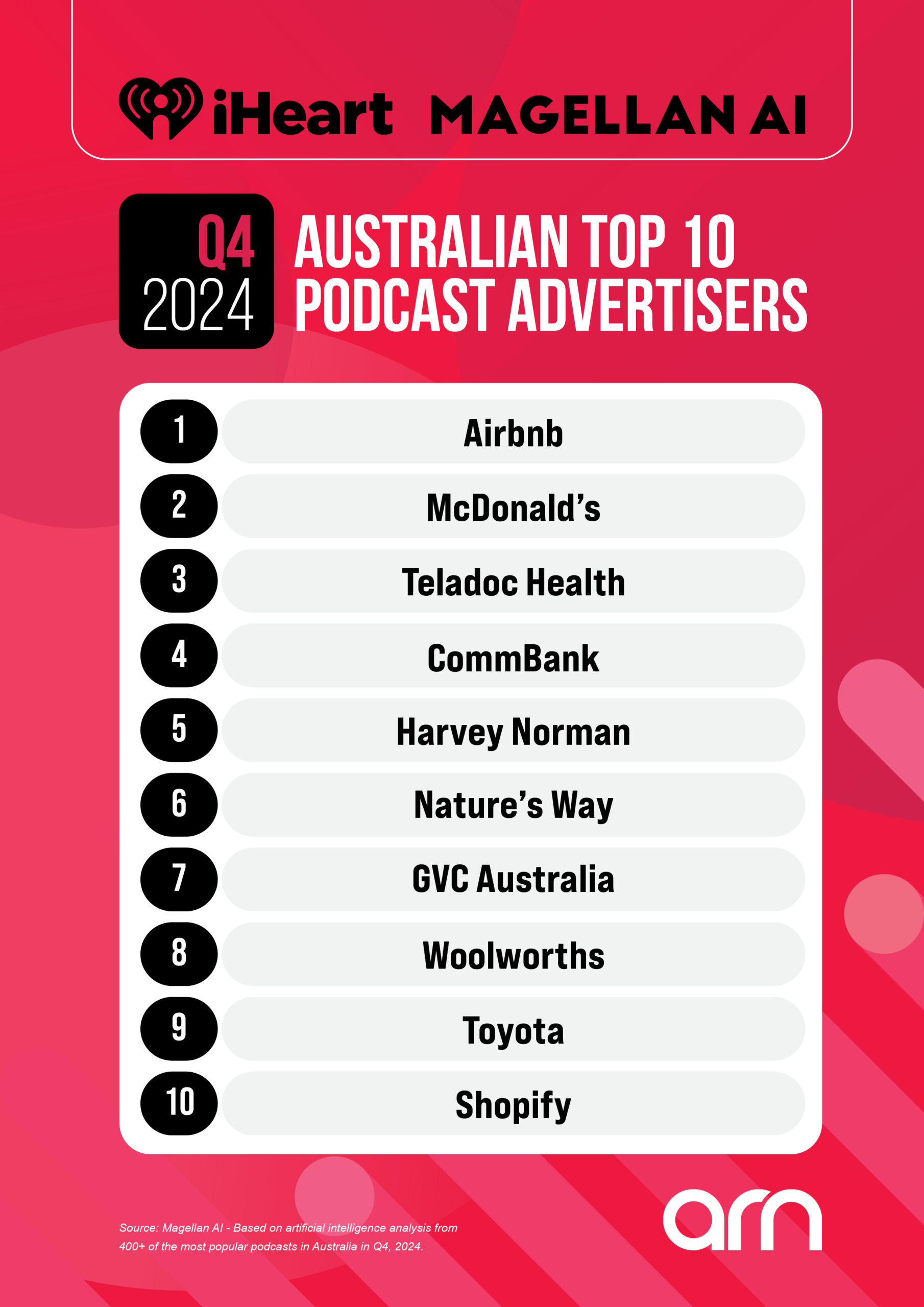
EssenceMediacom Clinches Second Top Podcast Agency Award
iHeart, in partnership with Magellan AI, has announced the Australian Agency of the Quarter Award for Q4 2024, recognising the agency with the highest investment in the Australian podcast sector.
For the second consecutive quarter, EssenceMediacom Australia (Sydney) received the accolade, reflecting its substantial advertising spend on podcasts during this period.
The award underscores the strategic emphasis on digital audio and podcast advertising.
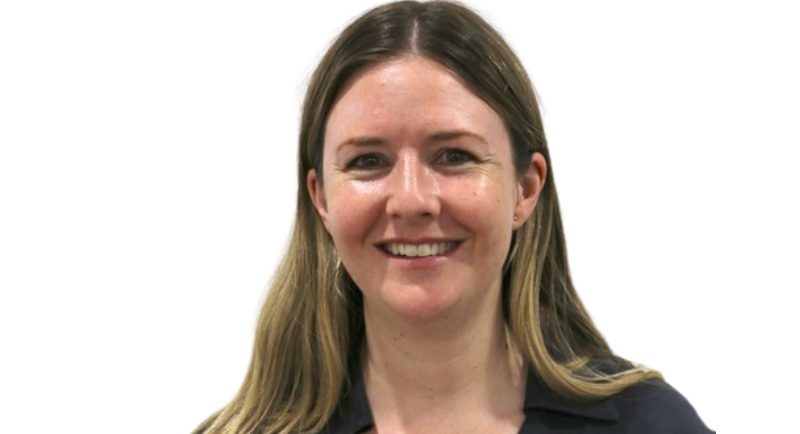
Airwallex appoints director of marketing to oversee ANZ region
Australian fintech company Airwallex has appointed Jennifer Snell as director of marketing, ANZ.
Snell brings more than 15 years of marketing experience to the role and will lead marketing initiatives throughout Australia and New Zealand.
She joins the fintech company from financial comparison website Finder, where she served as general manager, Marketing & Loyalty. Before this, she held senior roles at amaysim and BrickX.
Snell said of her new role: “As an Australia-founded tech company, this region is integral to Airwallex’s success story. I feel privileged to be driving marketing efforts for ANZ as we continue to scale and enable businesses to navigate the global financial landscape with ease and efficiency.”
She will report to Andrew Balint, who was recently appointed as VP, Marketing, APAC (ex-China). He said: “Jen has a stellar reputation for launching successful campaigns and brand building. I am delighted to have her on the team to take Airwallex’s brand to new heights and deliver on our mission to help businesses grow beyond borders.”
Airwallex’s growth in Australia and New Zealand continues to gain strength and will be further accelerated by the addition of new marketing hires. This week, the fintech announced its expansion in New Zealand, with the launch of corporate cards and online payments alongside plans to hire 10 employees on ground this year.
Snell’s appointment is effective immediately.
Last year, Airwallex’s partnership with the McLaren Formula 1 Team resulted in 59% increase in perceived brand trust among respondents who associated Airwallex with McLaren Racing,and 74% of respondents indicated the partnership makes them more likely to choose Airwallex.
With the 2025 Formula 1 season set to kick off in Melbourne next month, Airwallex’s partnership with the McLaren Formula 1 Team will be prominently showcased to anticipated record crowds at Albert Park.
Top image: Jennifer Snell
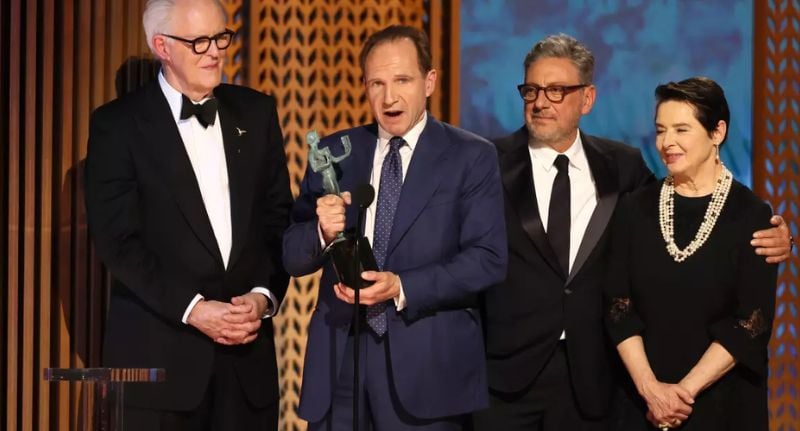
All the winners from the 2025 Screen Actors Guild Awards
Papal drama Conclave has secured the top film award at the 2025 Screen Actors Guild Awards, a win that may bolster its positioning as the Academy Awards draw near.
The ceremony’s nomination event ended up having to be cancelled earlier this year, due to the Los Angeles wildfires.
Actress Kristen Bell took on this year’s hosting duties, wowing the crowd with a rendition of Do You Want To Build a Snowman? from the Disney film Frozen.
Below is a list of all the nominees and winners from the ceremony:
Outstanding Performance by a Male Actor in a Leading Role
• Adrien Brody – The Brutalist
• Timothée Chalamet – A Complete Unknown – WINNER
• Daniel Craig – Queer
• Colman Domingo – Sing Sing
• Ralph Fiennes — Conclave
Outstanding Performance by a Female Actor in a Leading Role
• Pamela Anderson – The Last Showgirl
• Cynthia Erivo – Wicked
• Karla Sofía Gascón – Emilia Pérez
• Mikey Madison – Anora
• Demi Moore – The Substance – WINNER
Outstanding Performance by a Male Actor in a Supporting Role
• Jonathan Bailey – Wicked
• Yura Borisov – Anora
• Kieran Culkin – A Real Pain – WINNER
• Edward Norton – A Complete Unknown
• Jeremy Strong – The Apprentice
Outstanding Performance by a Female Actor in a Supporting Role
• Monica Barbaro – A Complete Unknown
• Jamie Lee Curtis – The Last Showgirl
• Danielle Deadwyler – The Piano Lesson
• Ariana Grande – Wicked
• Zoe Saldaña – Emilia Pérez – WINNER
Outstanding Performance by a Cast in a Motion Picture
• A Complete Unknown
• Anora
• Conclave – WINNER
• Emilia Pérez
• Wicked
Outstanding Action Performance by a Stunt Ensemble in a Motion Picture
• Deadpool & Wolverine
• Dune: Part Two
• The Fall Guy – WINNER
• Gladiator II
• Wicked
Outstanding Performance by a Male Actor in a Television Movie or Limited Series
• Javier Bardem – Monsters: The Lyle And Erik Menendez Story
• Colin Farrell – The Penguin – WINNER
• Richard Gadd – Baby Reindeer
• Kevin Kline – Disclaimer
• Andrew Scott – Ripley
Outstanding Performance by a Female Actor in a Television Movie or Limited Series
• Kathy Bates – The Great Lillian Hall
• Cate Blanchett – Disclaimer
• Jodie Foster – True Detective: Night Country
• Lily Gladstone – Under The Bridge
• Jessica Gunning – Baby Reindeer – WINNER
• Cristin Milioti – The Penguin
Outstanding Performance by a Male Actor in a Drama Series
• Tadanobu Asano – Shōgun
• Jeff Bridges – The Old Man
• Gary Oldman – Slow Horses
• Eddie Redmayne – The Day Of The Jackal
• Hiroyuki Sanada – Shōgun – WINNER
Outstanding Performance by a Female Actor in a Drama Series
• Kathy Bates – Matlock
• Nicola Coughlan – Bridgerton
• Allison Janney – The Diplomat
• Keri Russell – The Diplomat
• Anna Sawai – Shōgun – WINNER
Outstanding Performance by a Male Actor in a Comedy Series
• Adam Brody – Nobody Wants This
• Ted Danson – A Man On The Inside
• Harrison Ford – Shrinking
• Martin Short – Only Murders In The Building – WINNER
• Jeremy Allen White – The Bear
Outstanding Performance by a Female Actor in a Comedy Series
• Kristen Bell – Nobody Wants This
• Quinta Brunson -Abbott Elementary
• Liza Colón-Zayas – The Bear
• Ayo Edebiri – The Bear
• Jean Smart – Hacks – WINNER
Outstanding Performance by an Ensemble in a Drama Series
• Bridgerton
• The Day Of The Jackal
• The Diplomat
• Shōgun – WINNER
• Slow Horses
Outstanding Performance by an Ensemble in a Comedy Series
• Abbott Elementary
• The Bear
• Hacks
• Only Murders In The Building – WINNER
• Shrinking
Outstanding Action Performance by a Stunt Ensemble in a Television Series
• The Boys
• Fallout
• House Of The Dragon
• The Penguin
• Shōgun – WINNER
Brands
Nine exec meets CoStar founder ahead of $50b bid
As Sam Buckingham-Jones reports in The Australian Financial Review, in Two insiders confirmed the chat on condition of anonymity.
The timing of the meeting has sparked fresh speculation that Nine could be positioning itself for strategic shifts ahead of the high-stakes takeover drama.
Murdoch v Murdoch
As Jordan Baker reports in The Sydney Morning Herald, Prudence Murdoch has now revealed that speaking frankly with her father, Rupert, has never been simple.
Growing up, she realised his influence extended well beyond the dinner table. His opinions, amplified by global newspapers and TV networks, have shaped political discourse at the highest levels.
From print to podcast: NRL’s media revolution
As John Davidson reports on The Guardian, that playbook flipped in 2017 with the launch of Fox League, while digital platforms quietly took over the conversation.
Today, podcasts, social media, and blogs are rewriting how fans connect with “the greatest game.”
Television
Nine settles case with former Brisbane news boss
As David Knox reports in TV Tonight, The Fair Work Commission dropped the case after a conciliation earlier this month. Paterson, dismissed last November by Fiona Dear, faced a firing that insiders say was “mild” compared to the recent Intersection revelations.
Nine confirmed the settlement remains confidential, with no further comment expected.
NRL Vegas lineup rocks with Sewell, Stafford Brothers and Savage
As Brent Read, Michael Carayannis, Travis Meyn, and David Riccio report in The Australian, Kiwi hip-hop powerhouse Savage rounds out the trio, with all three set to energise both the NRL Fan Fest at Resorts World and the main stage on game day.
The vibrant mix of talent promises a fusion of sport and showbiz that’s set to captivate a diverse crowd.
Retail
Lovisa’s global blitz leaves investors on edge
As Carrie LaFrenz reports in The Australian Financial Review, in just six months, Lovisa has jumped from 943 outlets as of December 29 to new markets from Africa to Latin America – and now faces pricier terrain in Canada.
With CEO Victor Herrero bowing out, former Smiggle chief John Cheston steps in, tasked with hitting a 30% earnings jump for his bonus, with anything under 18% leaving him empty-handed.
Tech
Deepfake politics as Bollywood stars get an AI remix
In a report for SBS, journalist Olivia Di Iorio explores deepfakes featuring Bollywood stars falsely backing political parties have surged on social media.
Pamposh Raina, head of the Deepfakes Analysis Unit, noted that the audio tracks were often overhauled to completely rewrite the stars’ original messages, misleading voters into thinking they were genuine endorsements.
Telegram battles $1m fine over late response
As the SBS reports, back in March 2024, commissioner Julie Inman Grant served Telegram alongside WhatsApp, Google, Reddit, and X with transparency notices demanding details on tackling terrorist and extremist content.
Notably, Telegram and Reddit also faced questions on combating child sexual abuse material. While most platforms hit the May deadline, Telegram’s reply lagged by five months, drawing a fine of $957,780.
Streaming
Gascón’s Oscars comeback amid Twitter tumult
As Benjamin Lee reports in The Guardian, Initially booted from the awards trail by Netflix, the controversy saw the platform pull her campaign.
Now, Variety reports that Netflix is covering her expenses for the LA trip. As the first out transgender actor nominated for Best Actress, Gascón has been a standout on the awards circuit, making her return all the more notable.
